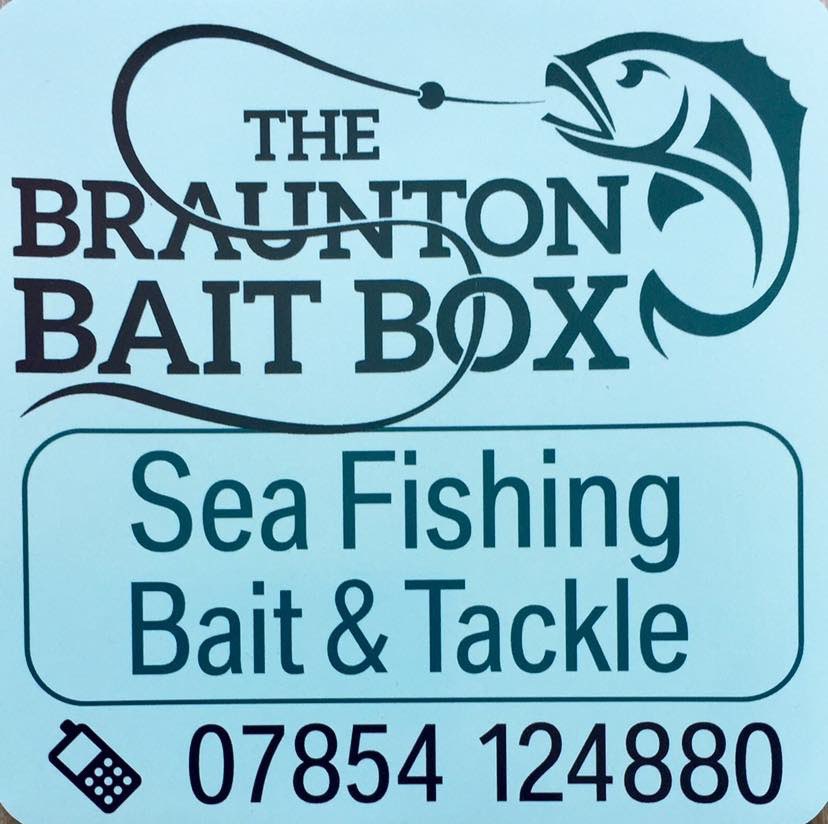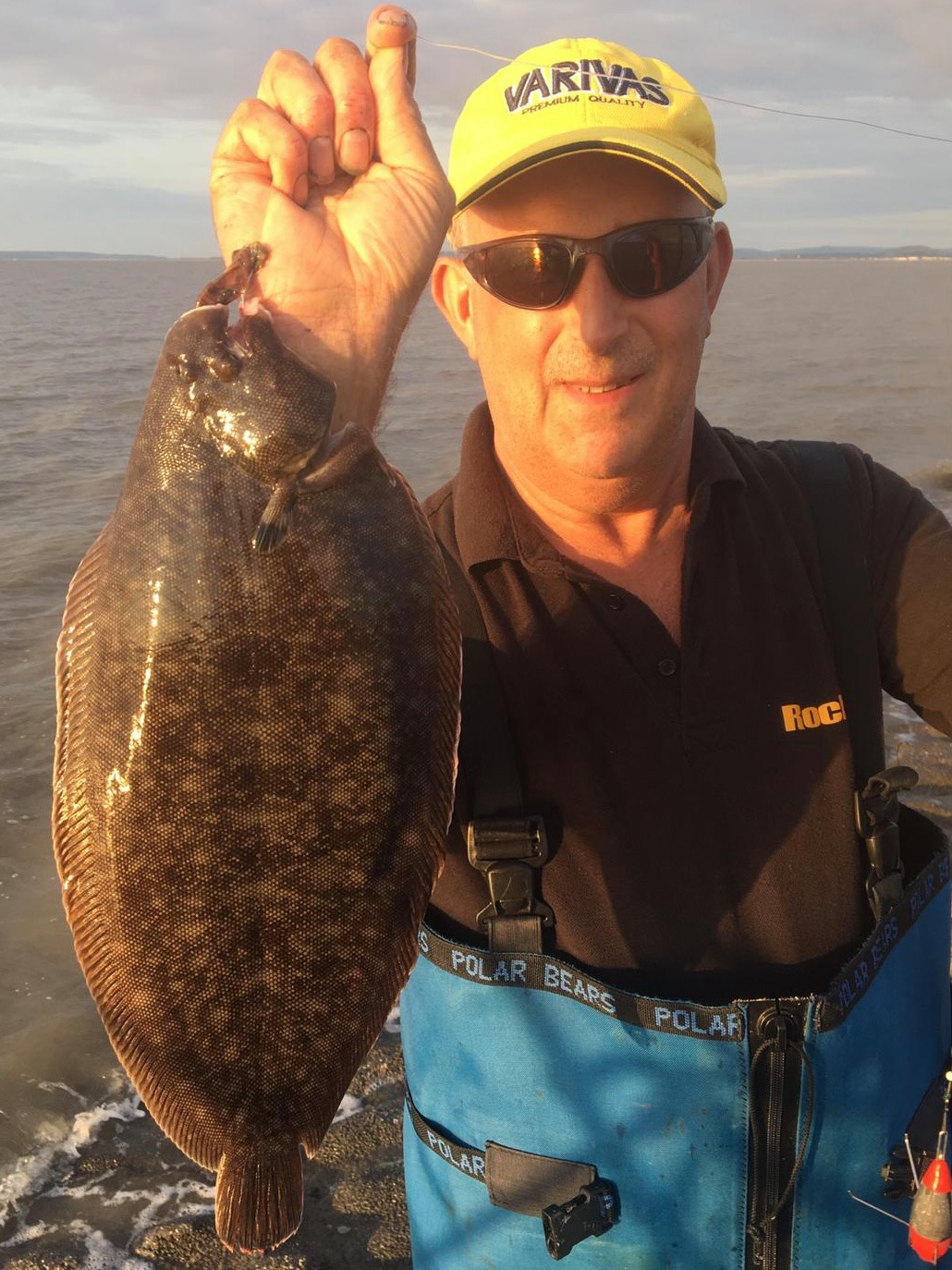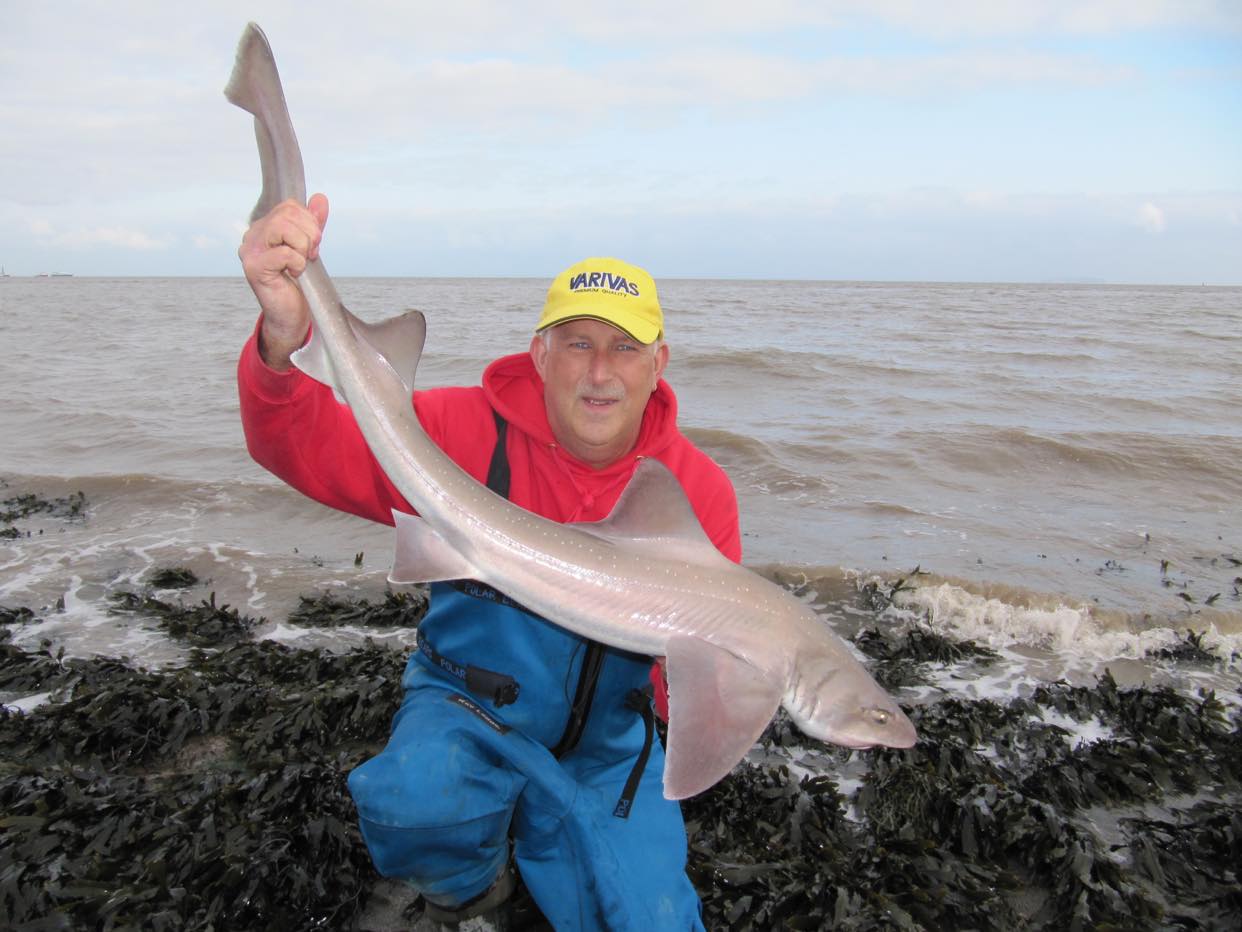A gentle surf broke onto the beach as I paused to take in the view after tackling up a pair of rods. There was no rush with high water a couple of hours away and the sun still high in the sky. I walked along the high water mark to see what the previous tides had left behind. Pieces of driftwood smooth and weathered, where were they from I wondered? Flotsam and jetsam always fascinates me wondering what stories it could tell.
(Flotsam and jetsam are terms that describe two types of marine debris associated with vessels. Flotsam is defined as debris in the water that was not deliberately thrown overboard, often as a result from a shipwreck or accident. Jetsam describes debris that was deliberately thrown overboard by a crew of a ship in distress, most often to lighten the ship’s load. The word flotsam derives from the French word floter, to float. Jetsam is a shortened word for jettison.)
The cliffs showed signs of recent erosion and I noticed that the remains of an old building that once showed on the cliffside had slipped away. My generation would perhaps recall the ruins but as times slips past no one will be aware that the buildings ever existed. There is much that we see in a life time and fail to register, sign posts that tell of times gone by and of other’s lives.
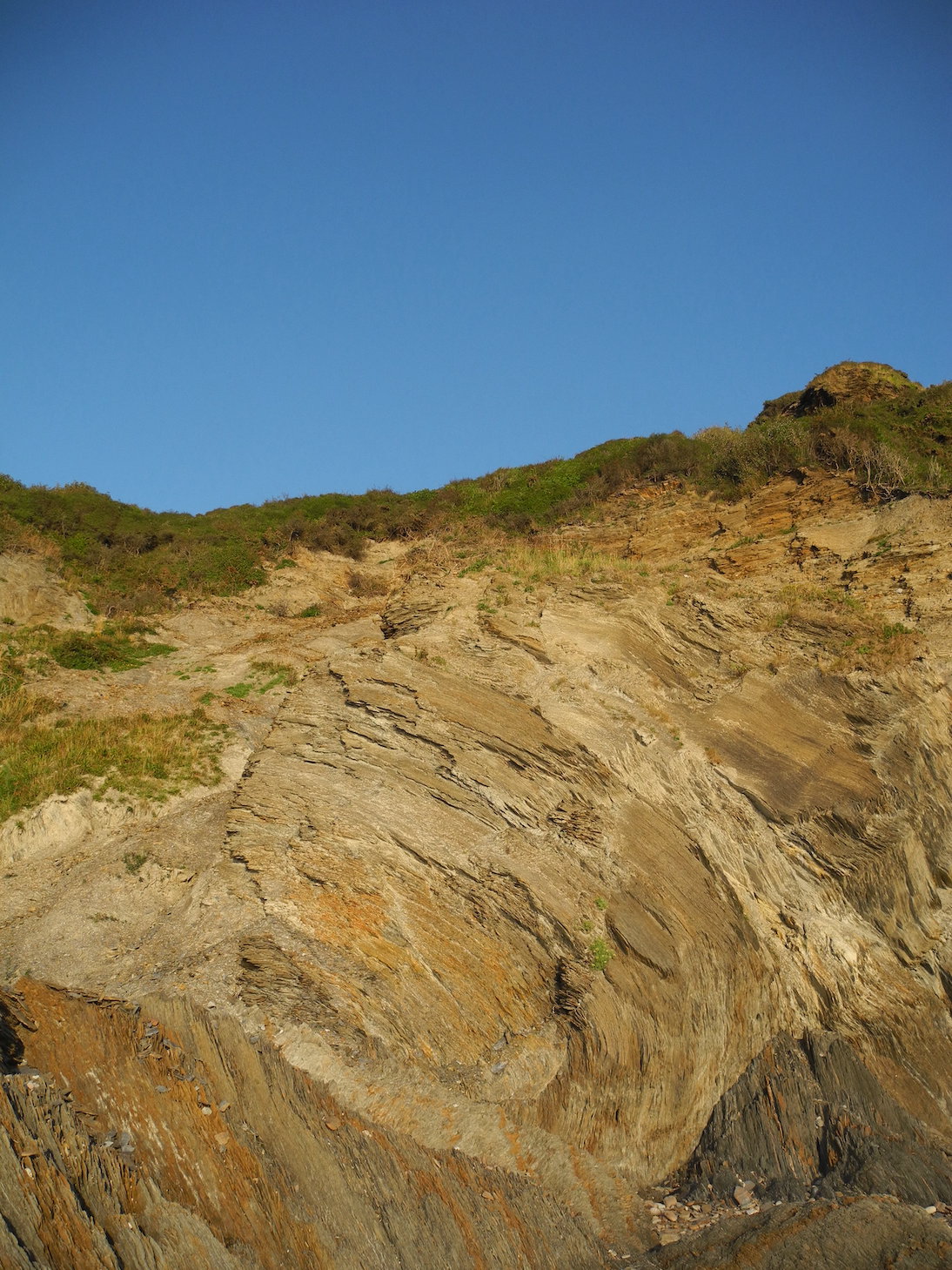
The geographical rock strata with its tortured twisting shapes reflects the power and dynamics of this ever changing world in which we live. Millions of years etched upon the face of the cliffs as erosion reveals a distant history that is hard to comprehend.
As the sun slowly sank lower on the familiar horizon I cut fresh bait and threaded it carefully onto the large sharp hooks. A gentle lob put the baits at the edge of the shingle where I hoped a bass or huss would be on the prowl..
The rods sat poised upon the rod rest silhouetted against the golden light of the sun as it reflected upon the calm waters of the bay. Rob who I was with moved across closer to my station after successfully catching a wrasse having cast out before me, perhaps a little more eager to catch than I was.
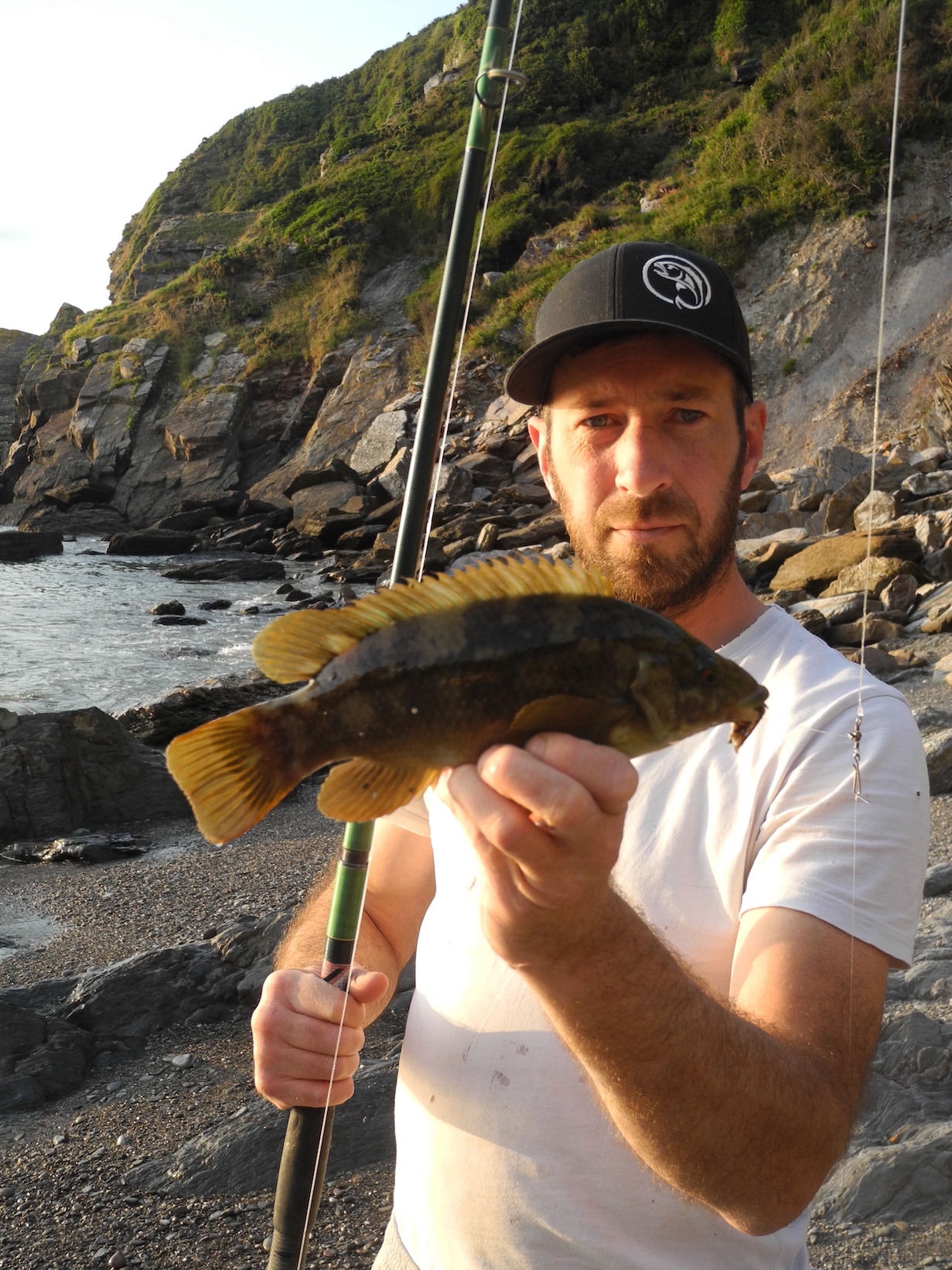
I didn’t expect to catch until the sun had set and the tide had reached its high point. The wind was also in the East which gave little confidence but failed to extinguish all hope.
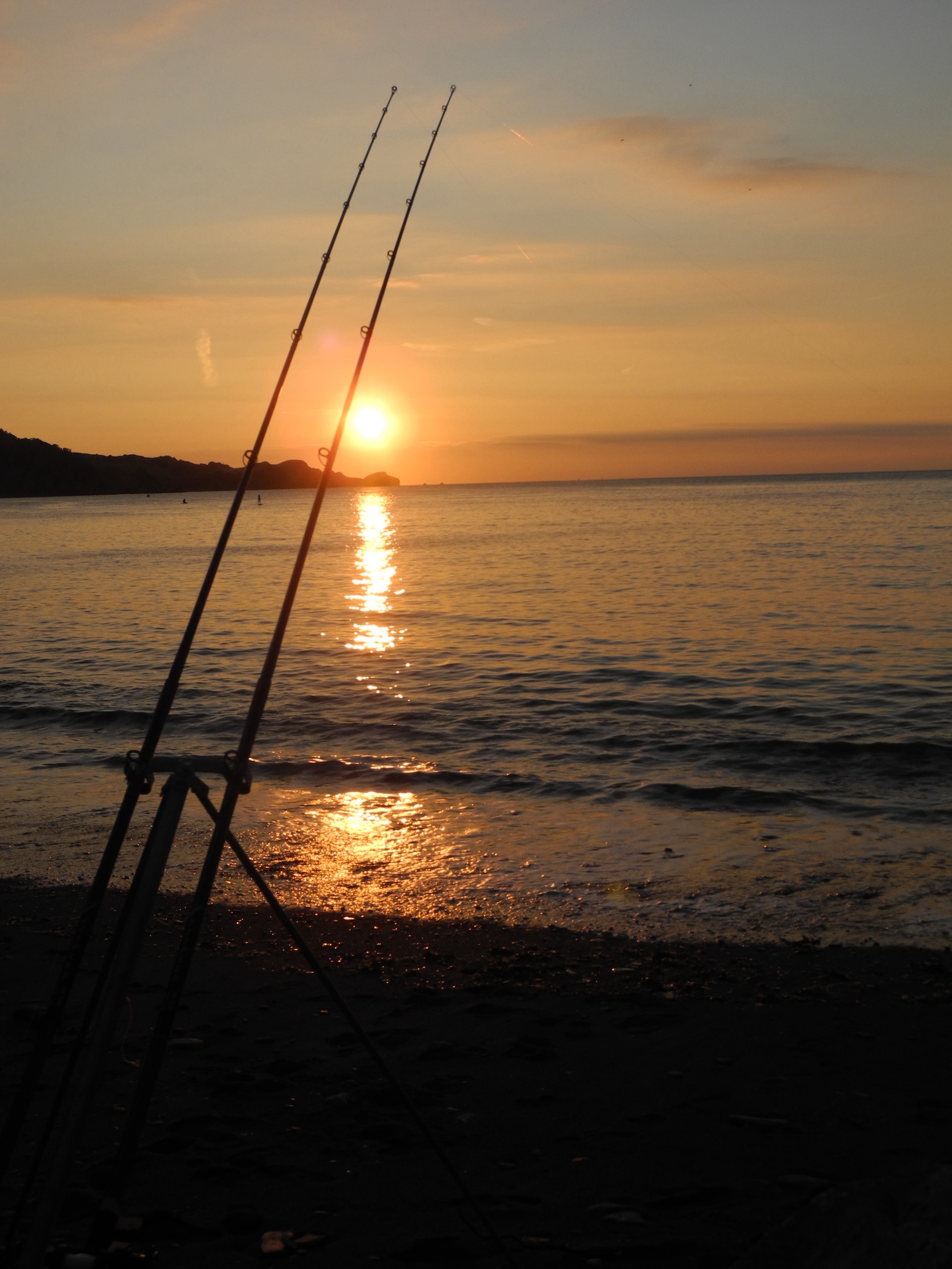
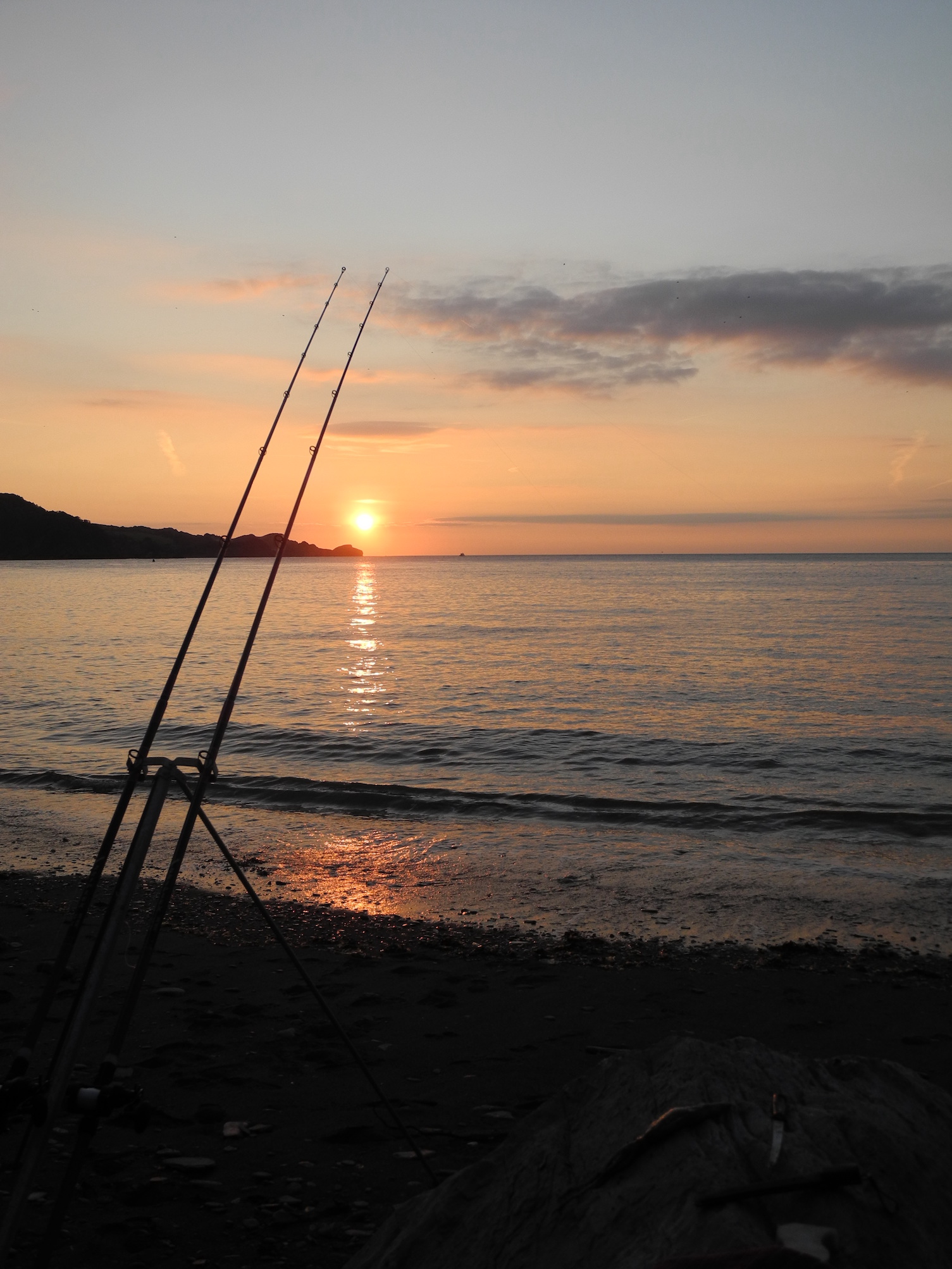
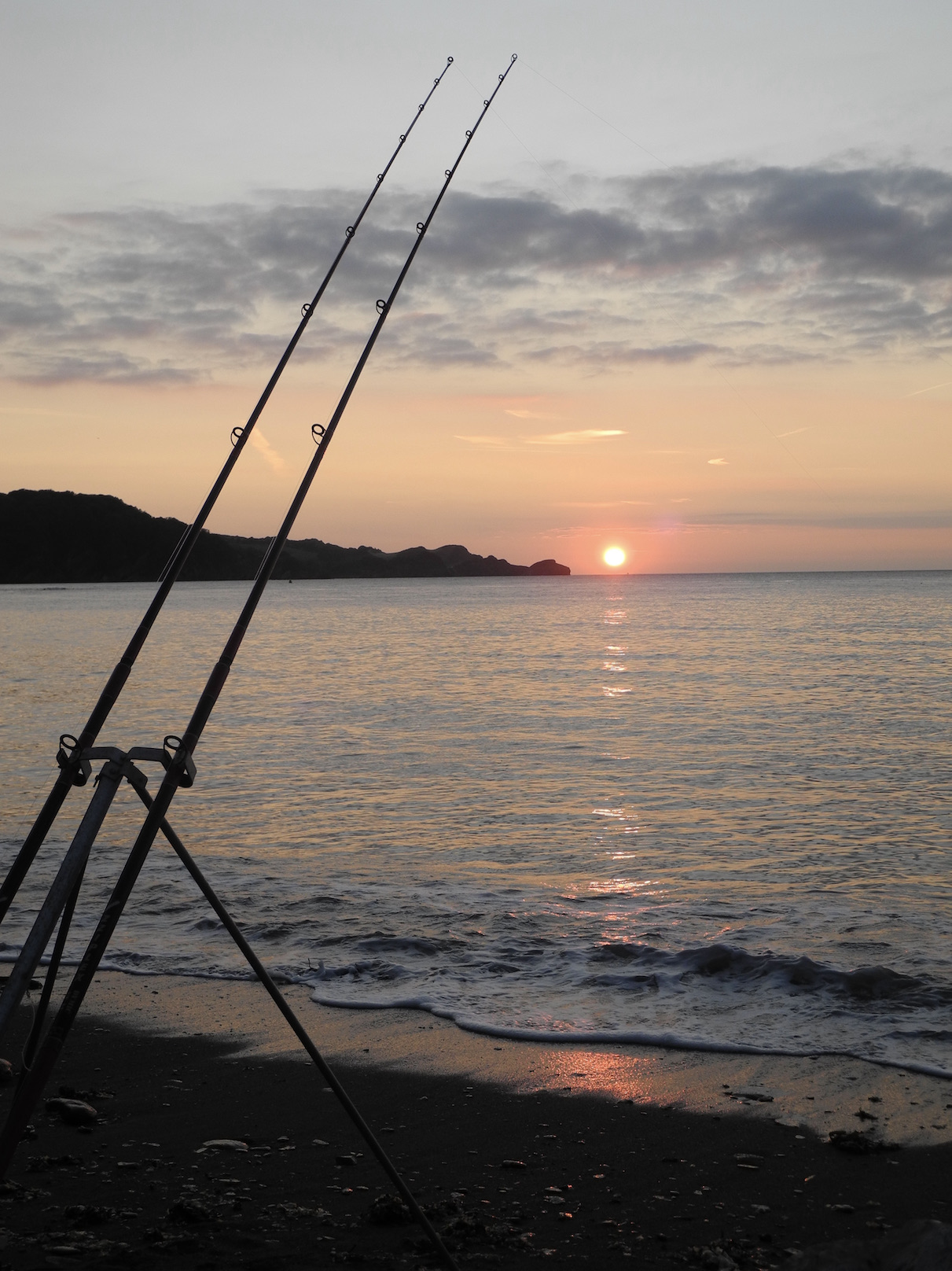
A flotilla of boats paused in the bay carrying sightseers who had undoubtedly paid good money for a spectacular sunset cruise.
The sun eventually sank from sight. The tide peaked and with it ebbed away hope of success. We packed away an hour after high water and trudged slowly back up the slippery cliff path pausing frequently to catch our breath. The air was warm and grasshoppers chirped in the grass. Slugs had emerged to feast in the darkness gliding slowly across the path. The sound of the waves crashing upon the shore far below slowly faded into silence.
At the top of the cliff, we again stopped and looked out over the bay. Where Lights twinkled on the shoreline. As we climbed over the brow we saw the village lights familiar in the valley below. A wasted night some would say but there is more to fishing than catching fish.
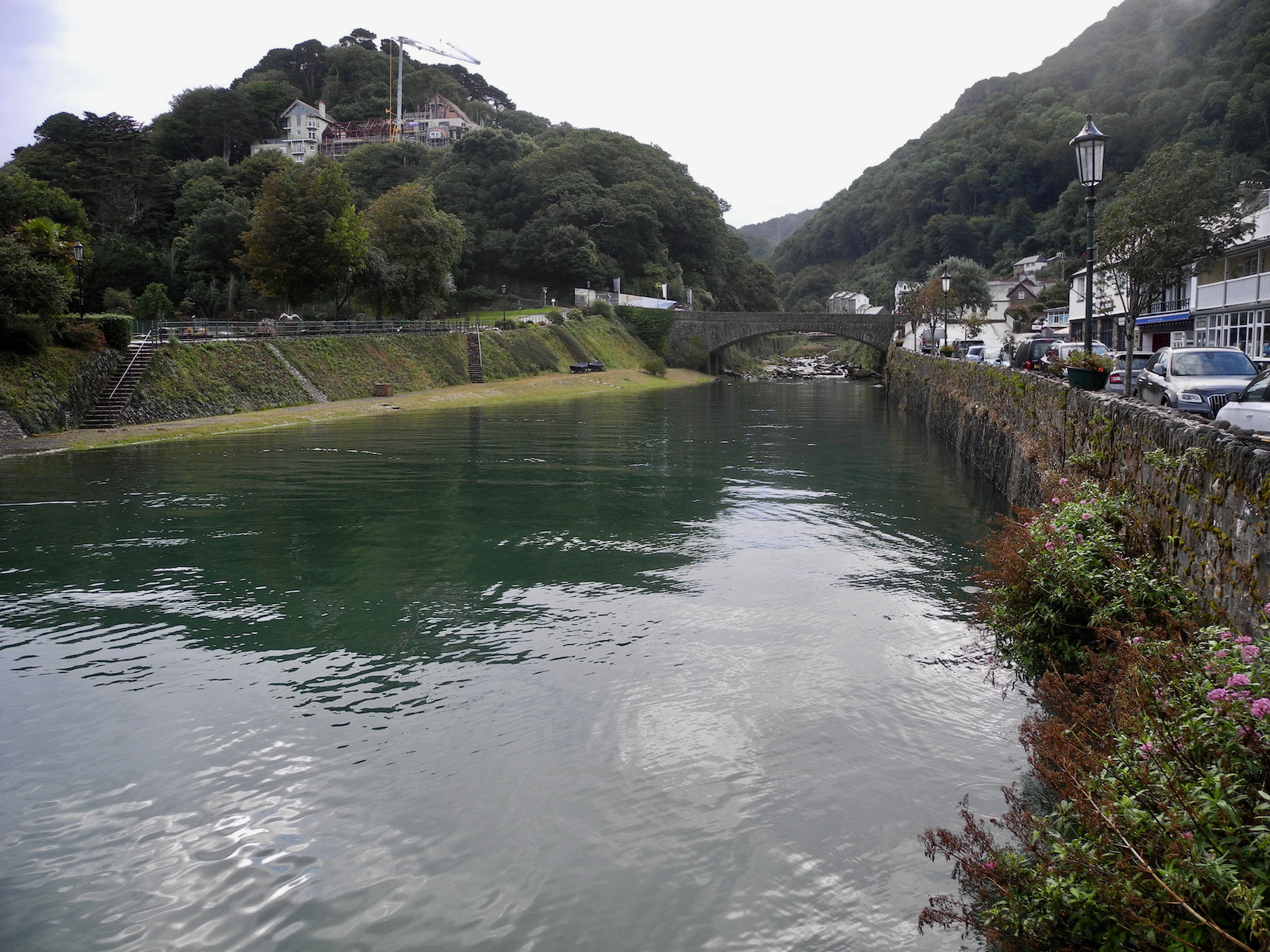
A few days later I embarked upon a short mullet fishing session at Lynmouth. It was high tide when I arrived and the tide was pushing up under the main road bridge. I would often take a look to see if any big mullet were present at the top of the tide where fresh and salt water converge but on this occasion I was keen to get set up and start fishing the ebbing tide.
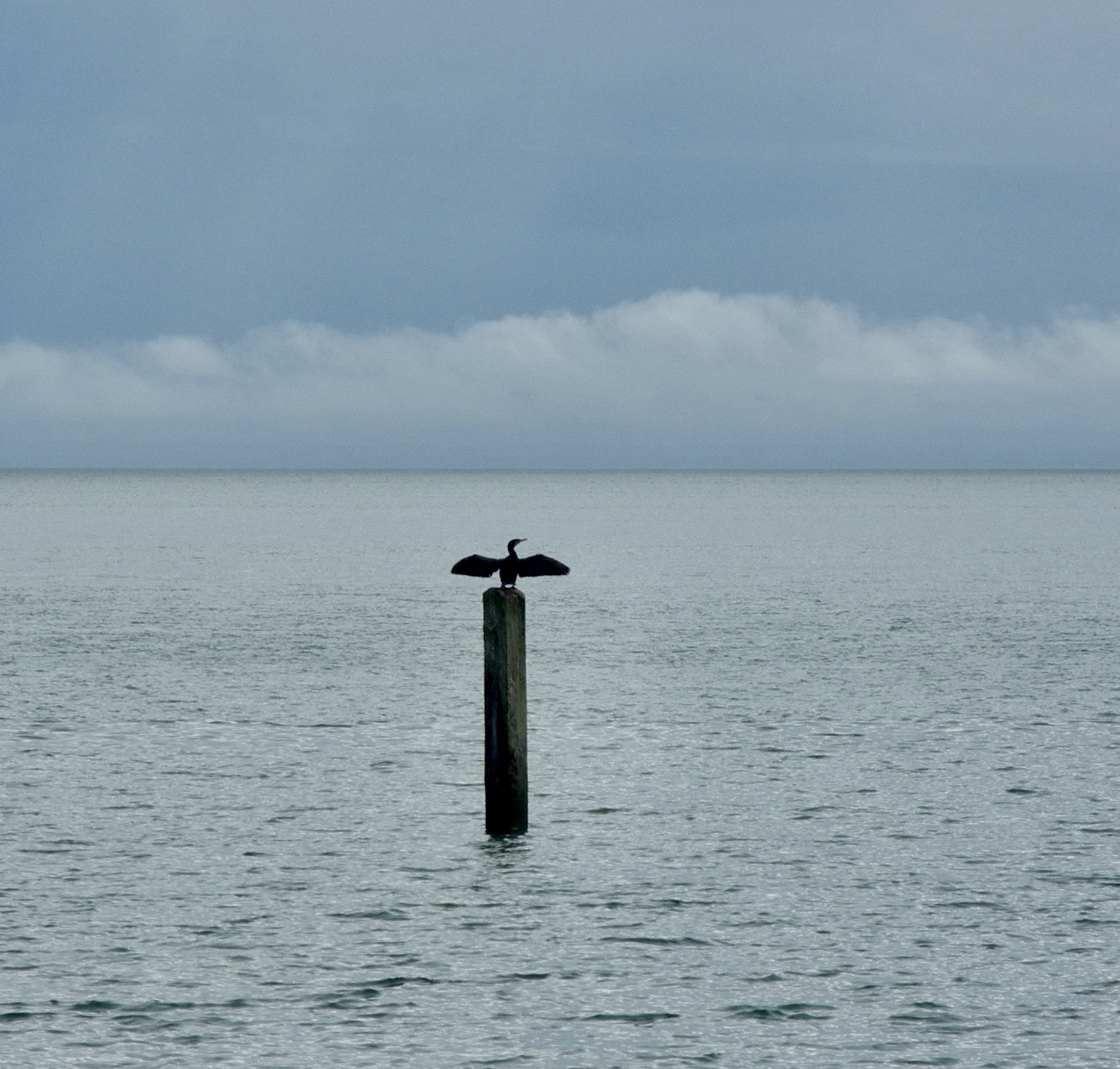
A couple of hours before I had been lying in bed listening to the pitter and patter of rain on the skylight and had briefly contemplated not bothering; fortunately, the quest for a mullet was strong. The morning was by now bright and dry with light clouds drifting slowly across the blue sky.
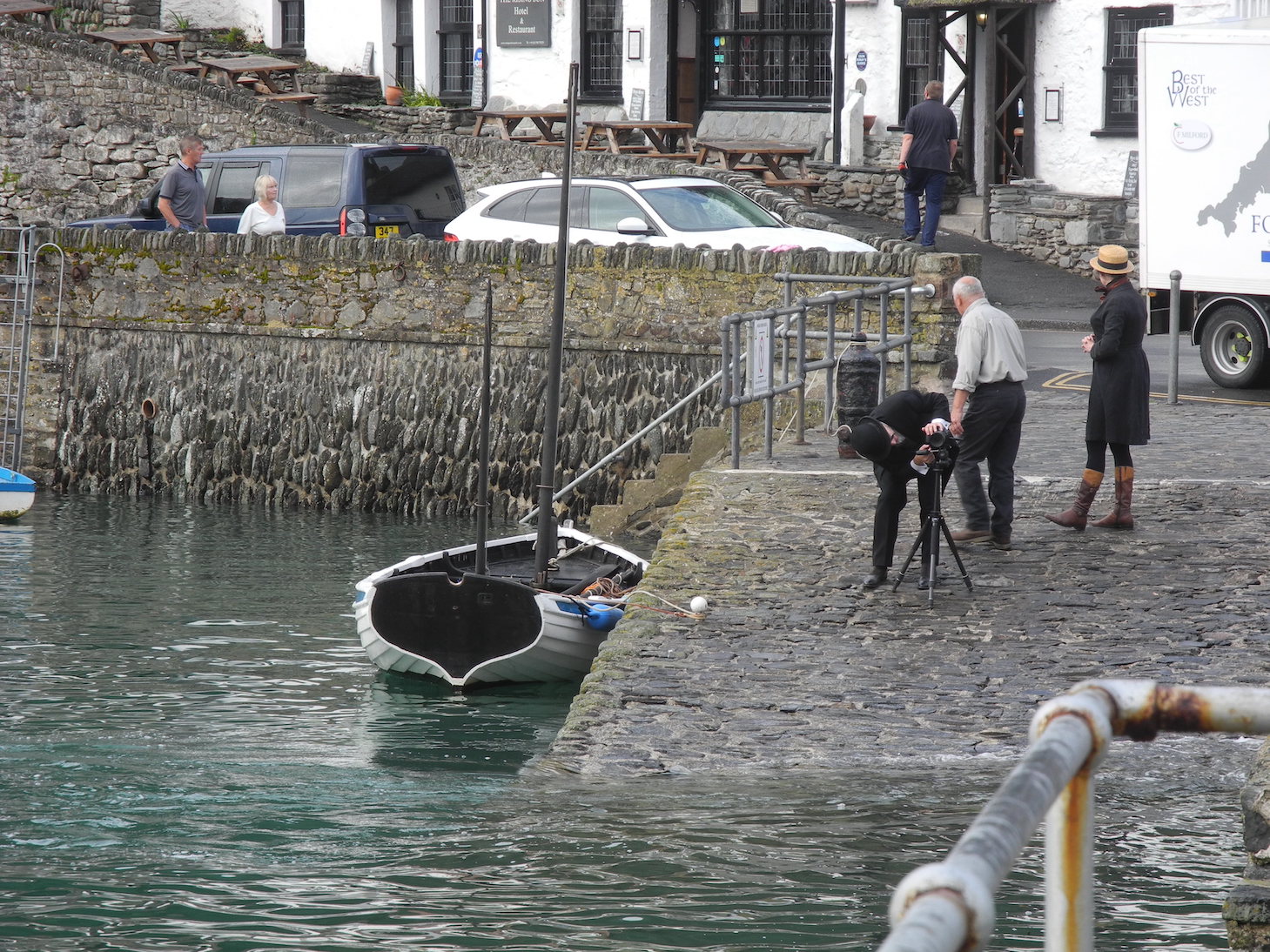
Fishing trips are sometimes remembered for reasons other than fish as on this occasion. At the top of the slipway, I noticed that a gentleman dressed in what I perceived to be Victorian clothing was arranging a camera and tripod. The object to be filmed was a boat and lady dressed in similar period costume. The boat was being skill-fully manoeuvred by Pete Mold sculling at the rear of the boat. Aware that they might not want an angler casting out at an inopportune time of the film I enquired as to what they were doing. They were performing a piece of classical ‘Elgar’ for their You-tube Channel.
(Above) Mezzo-Soprano Patricia Hammond informed me, “Edward Elgar’s “Sea Pictures”, five pieces for alto and orchestra, which Matt Redman has arranged for alto and guitar. We’ve now filmed four of the five…two others are up on the channel already, and the fourth we filmed in the Valley of the Rocks”
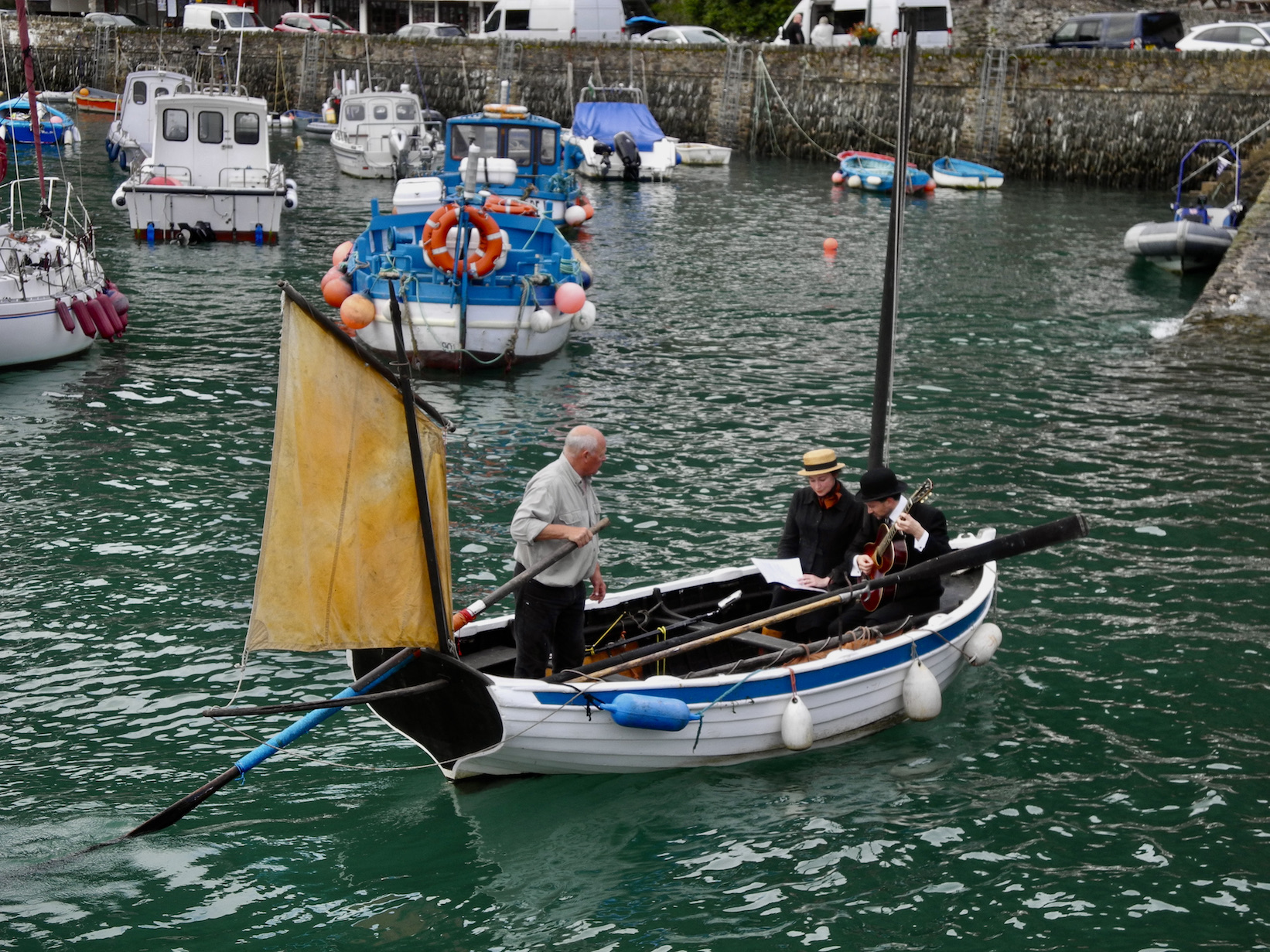
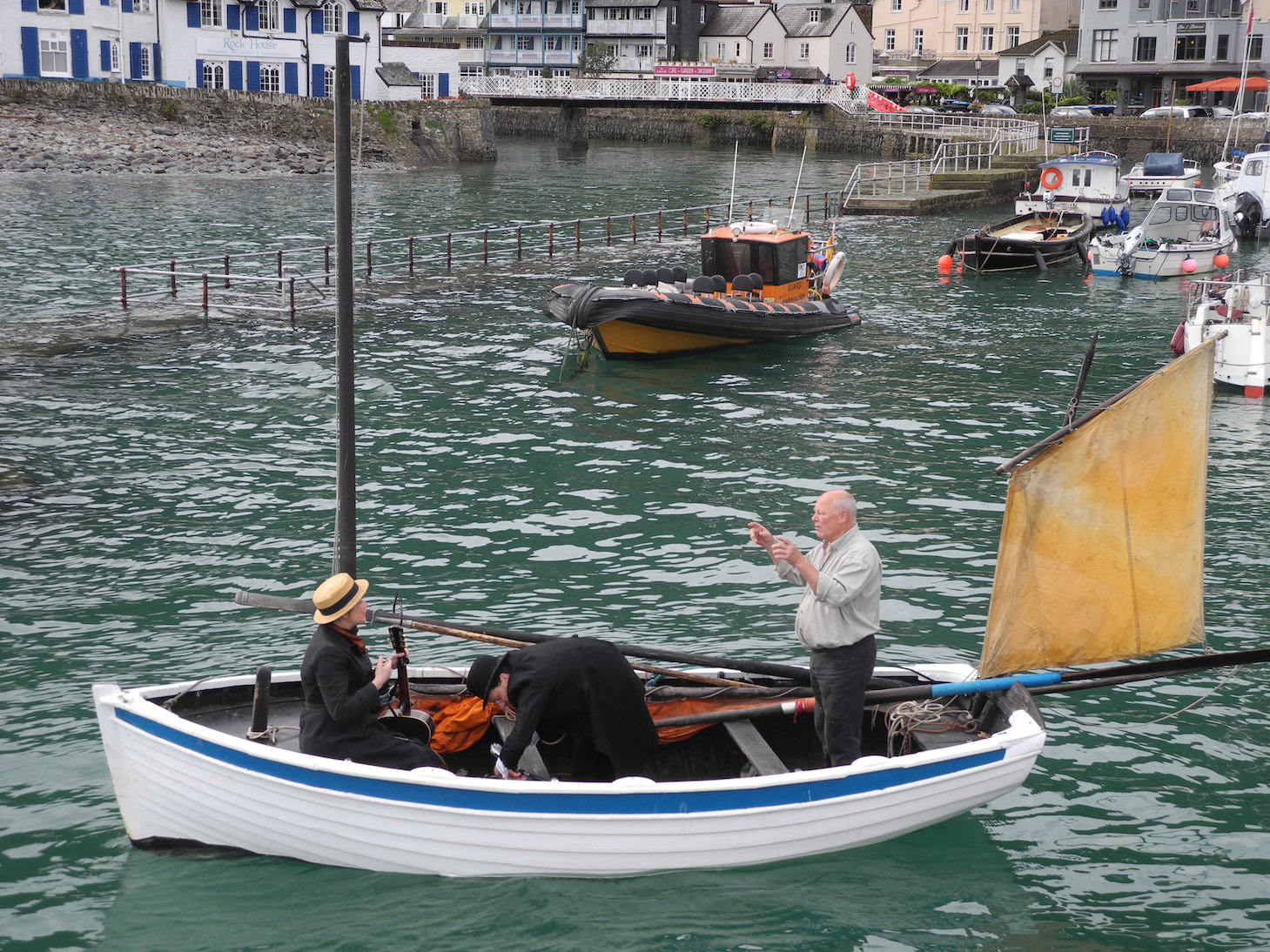
I was told I would not be in the way at all. I was privileged to have a front seat for the performance with the Classical musical notes drifting around the harbour. The morning felt slightly surreal with the towering wooded hillsides, wisps of mist rising from within, the calm sea and boats bobbing upon the waters of the tranquil harbour.
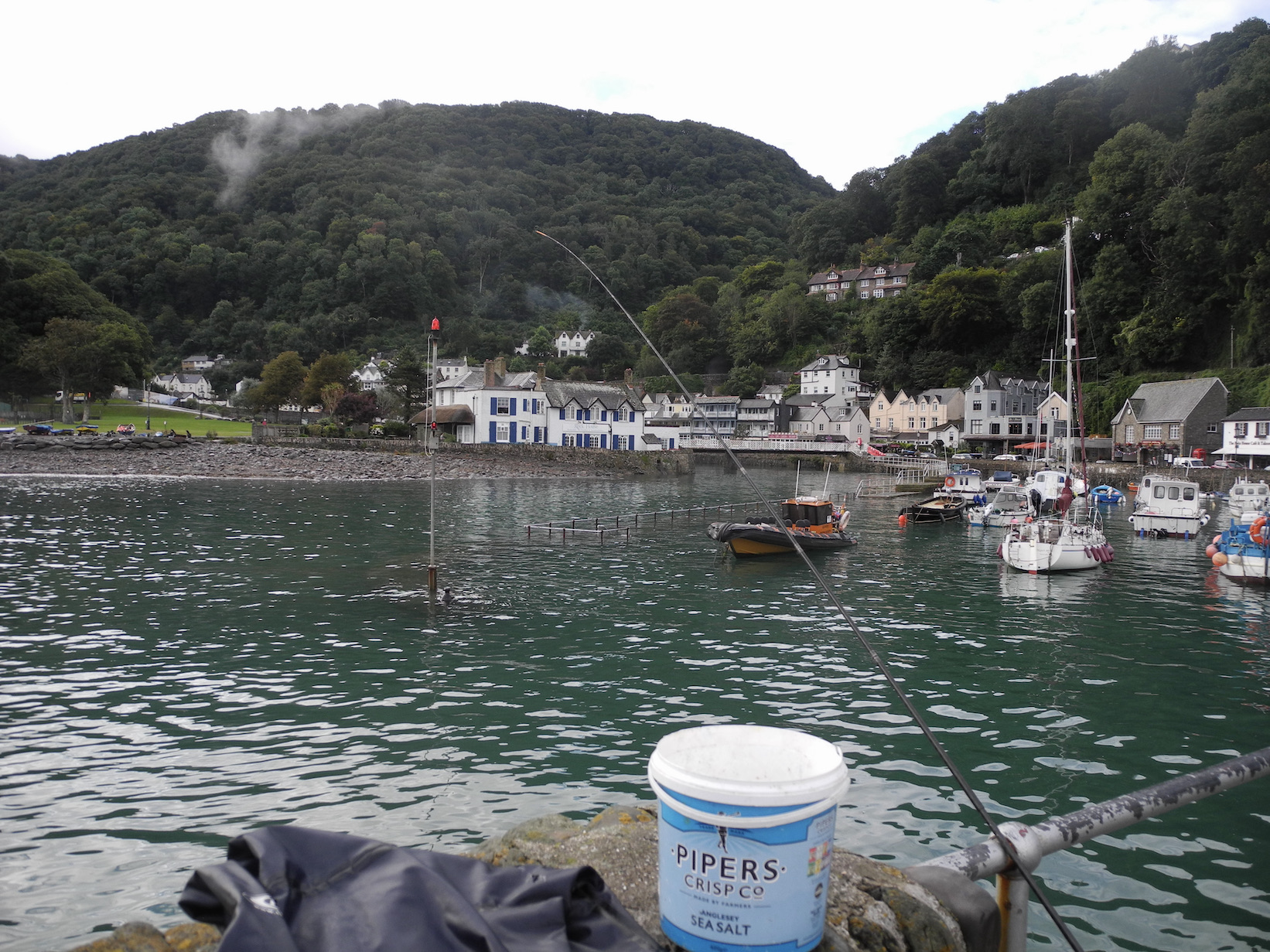
I contemplated upon the contrast between the serenity of the morning and past nights spent fishing the harbour mouth as winter swells surged over the wall. Nights when icy rain beat down and north winds that chilled to the bone as the rod tips reflected light from the head torch.
Later a good friend Andy Huxtable who once lived in my home town of Combe Martin joined me for a chat. We reminisced about fishing and our youthful days in Combe Martin rekindling many good memories. The tide ebbed away and the rod tip rattled as a couple of small mullet interrupted the morning. After a hot coffee from the takeaway I ran out of water and set off for home.
Shortly after arrival I opened the back door of the van to find no fishing bag!! A quick drive to Lynmouth and my heart sank for there was no sign of it on the wall where I had been parked. I enquired in the adjacent shop if anyone had handed in a green fishing bag? A negative response, but as I walked out a lady commented. “ Did you say you had mislaid a bag?” . Yes I replied to be told it had been handed into the National Park Centre at the Pavillion. I was very relieved to collect my tackle bag and camera faith in human nature fully recharged.
A celebratory Ice Cream followed for Pauline and I.
A memorable morning fishing with poor piscatorial results but one that will resonate in the memory for a good while. There is certainly more to fishing than catching fish.




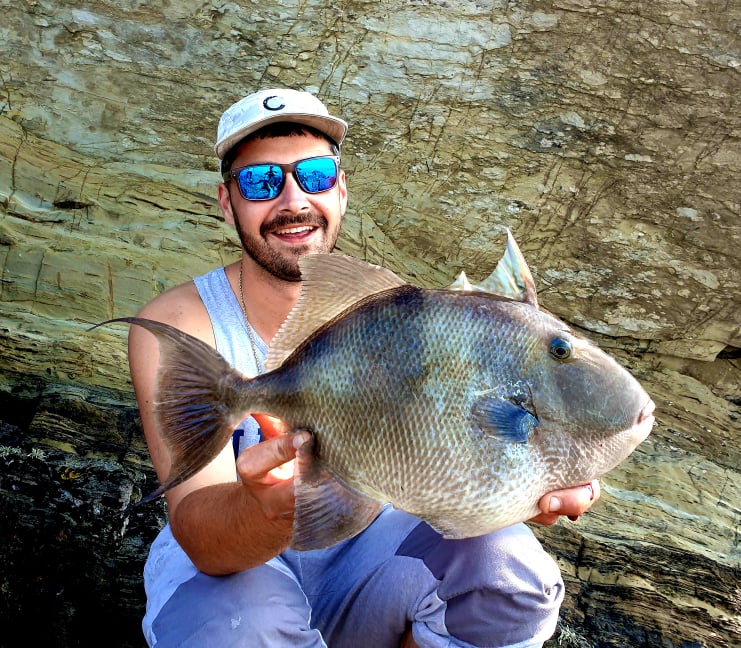
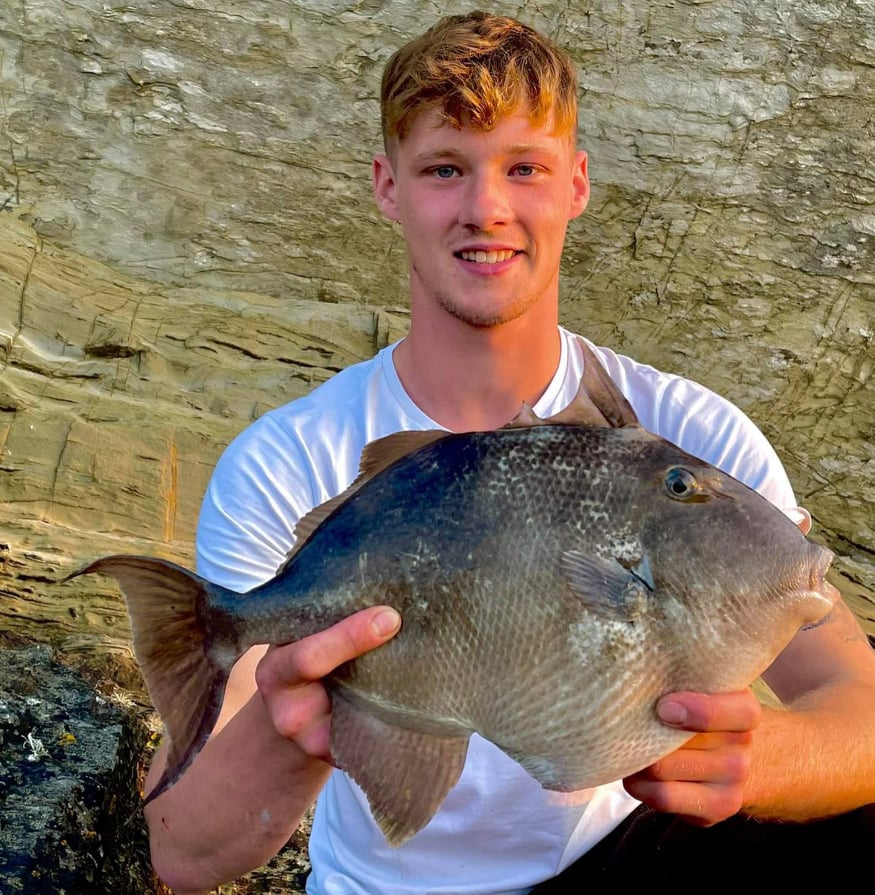
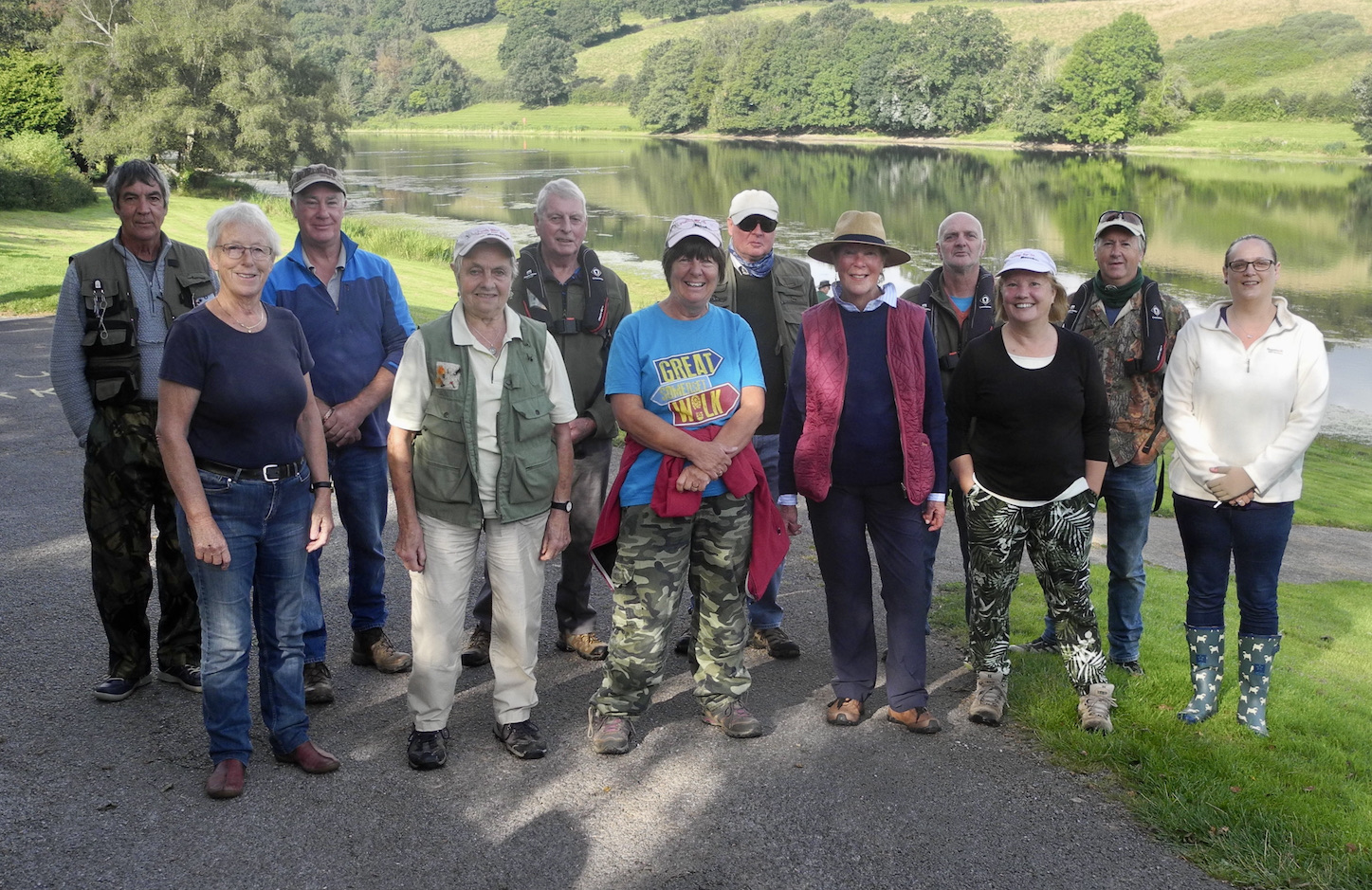
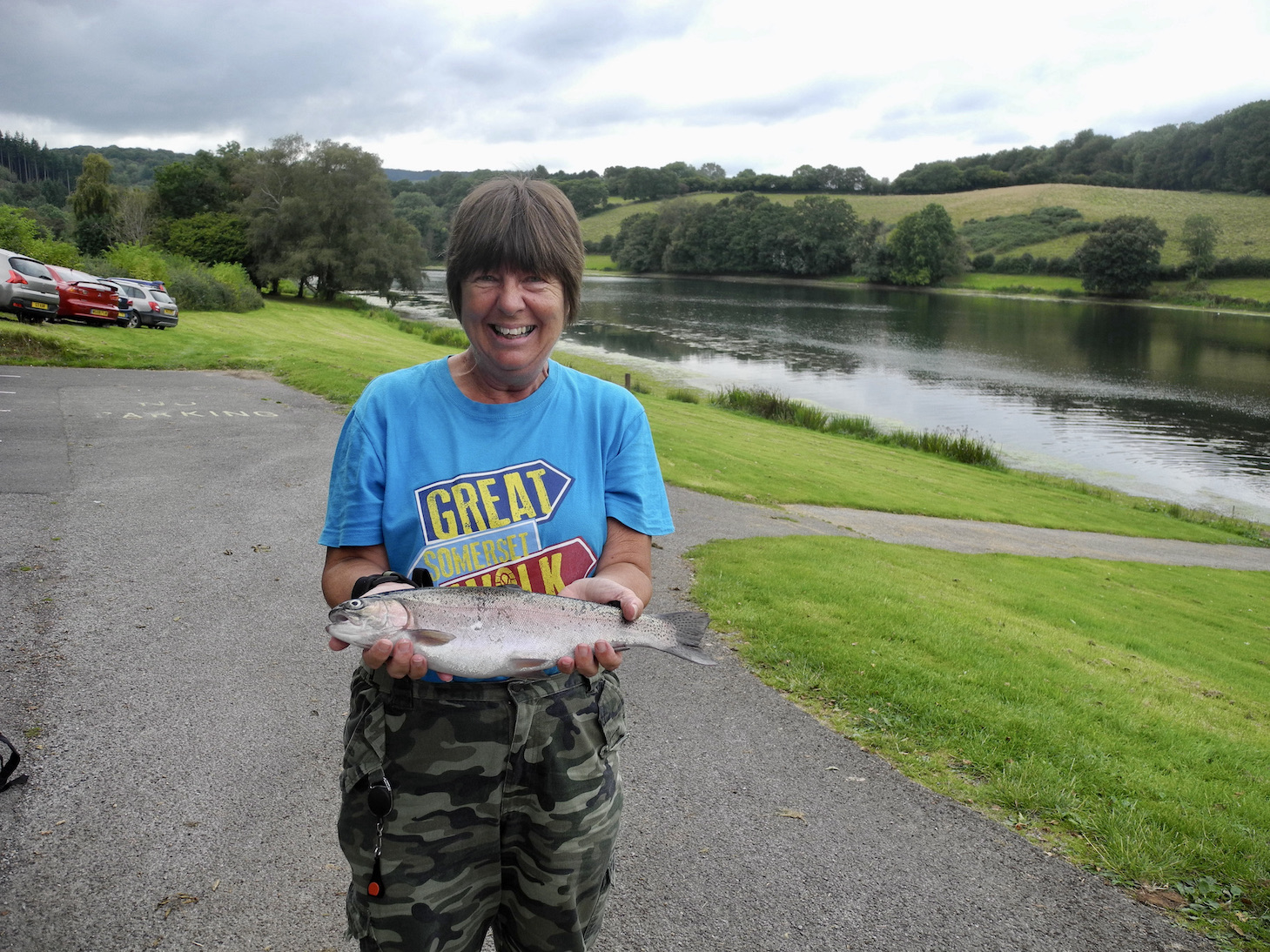 The Wistlandpound Club members fished on after the mornings boat sharing to compete in the clubs Roger and Guard Shield. The winner was Colin Combe with four trout for 11lb 4oz and runner up myself with four trout for 9lb 12oz. David Eldred was third with one trout of 2lb 14oz.
The Wistlandpound Club members fished on after the mornings boat sharing to compete in the clubs Roger and Guard Shield. The winner was Colin Combe with four trout for 11lb 4oz and runner up myself with four trout for 9lb 12oz. David Eldred was third with one trout of 2lb 14oz.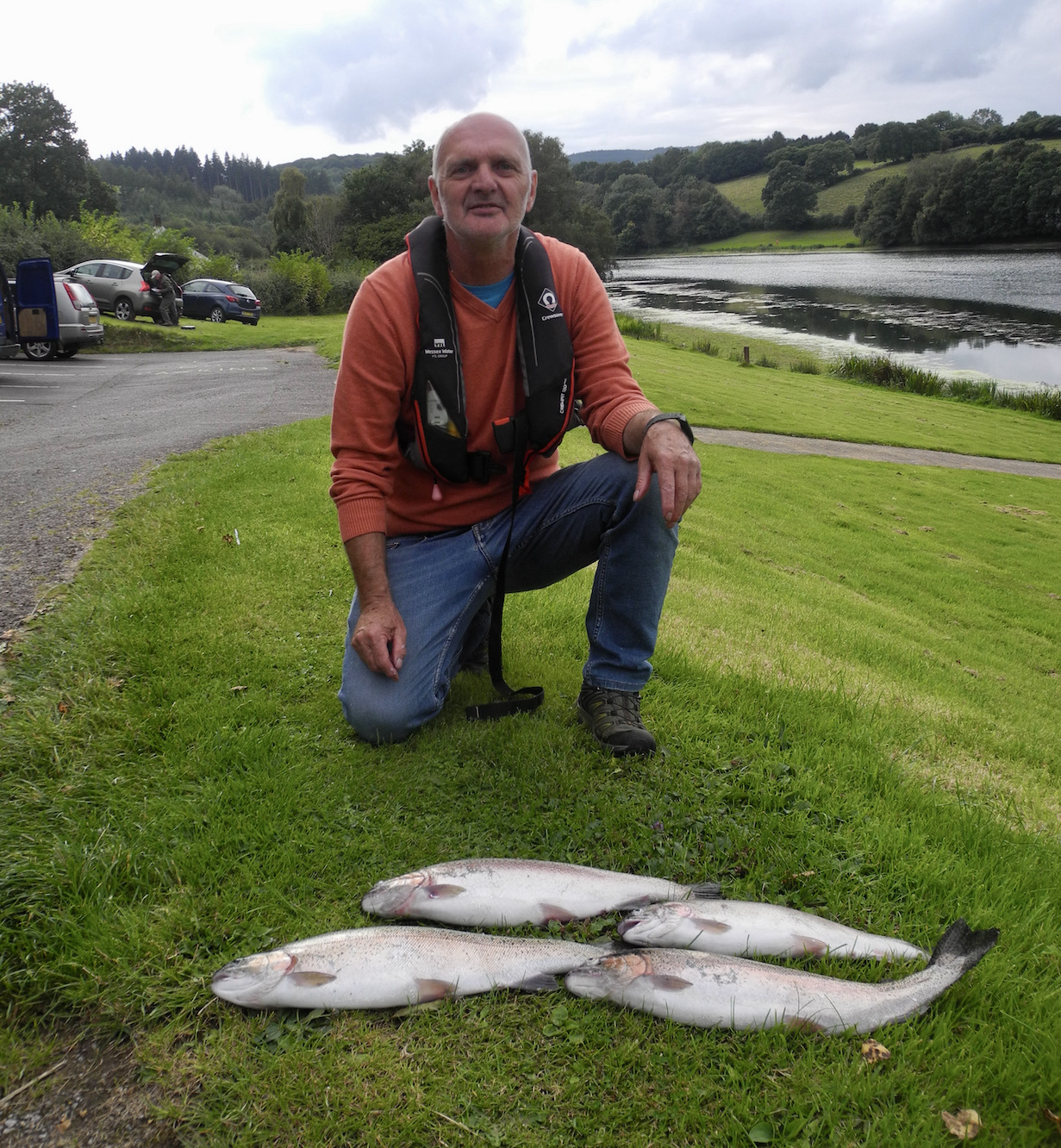
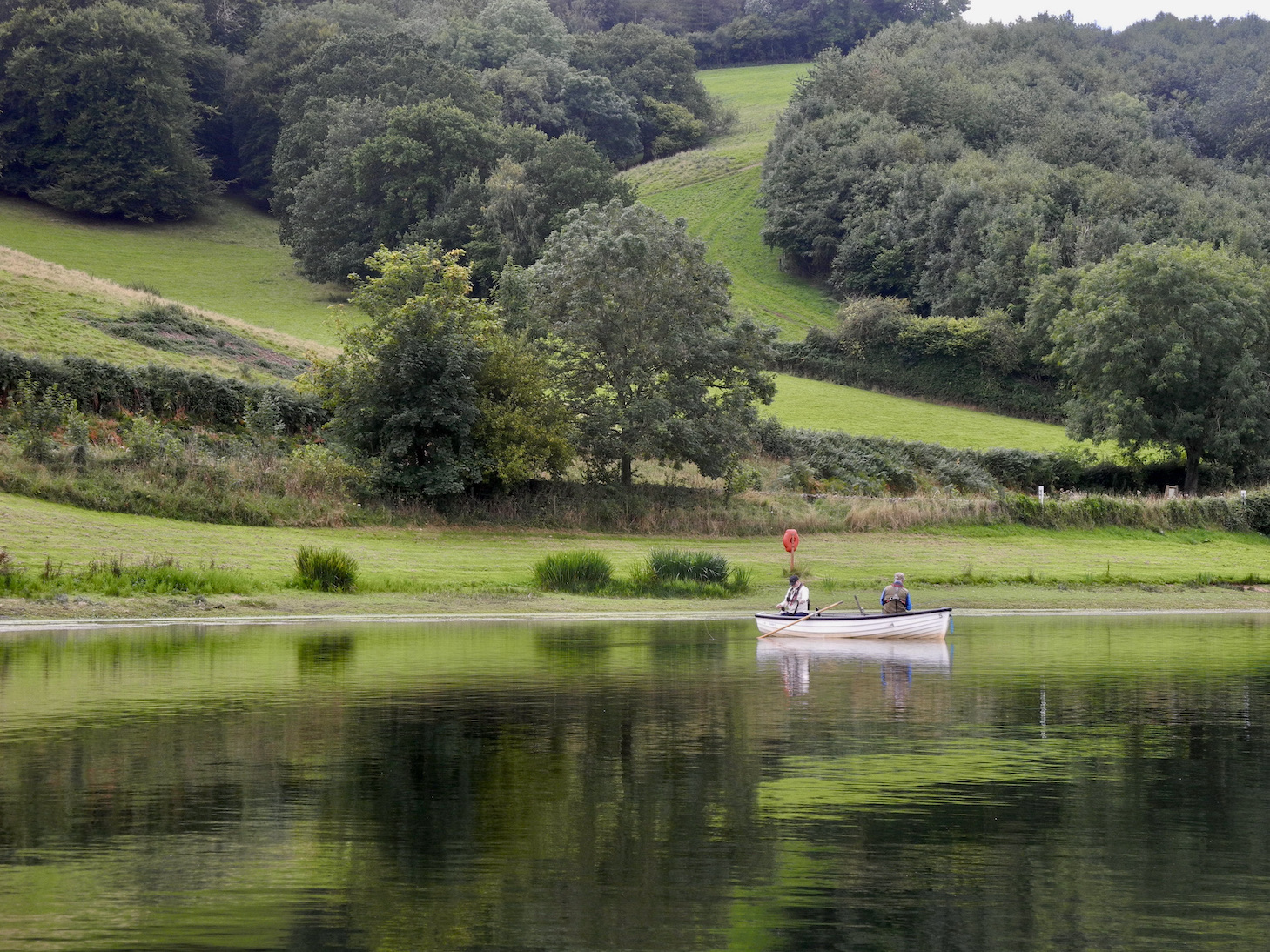
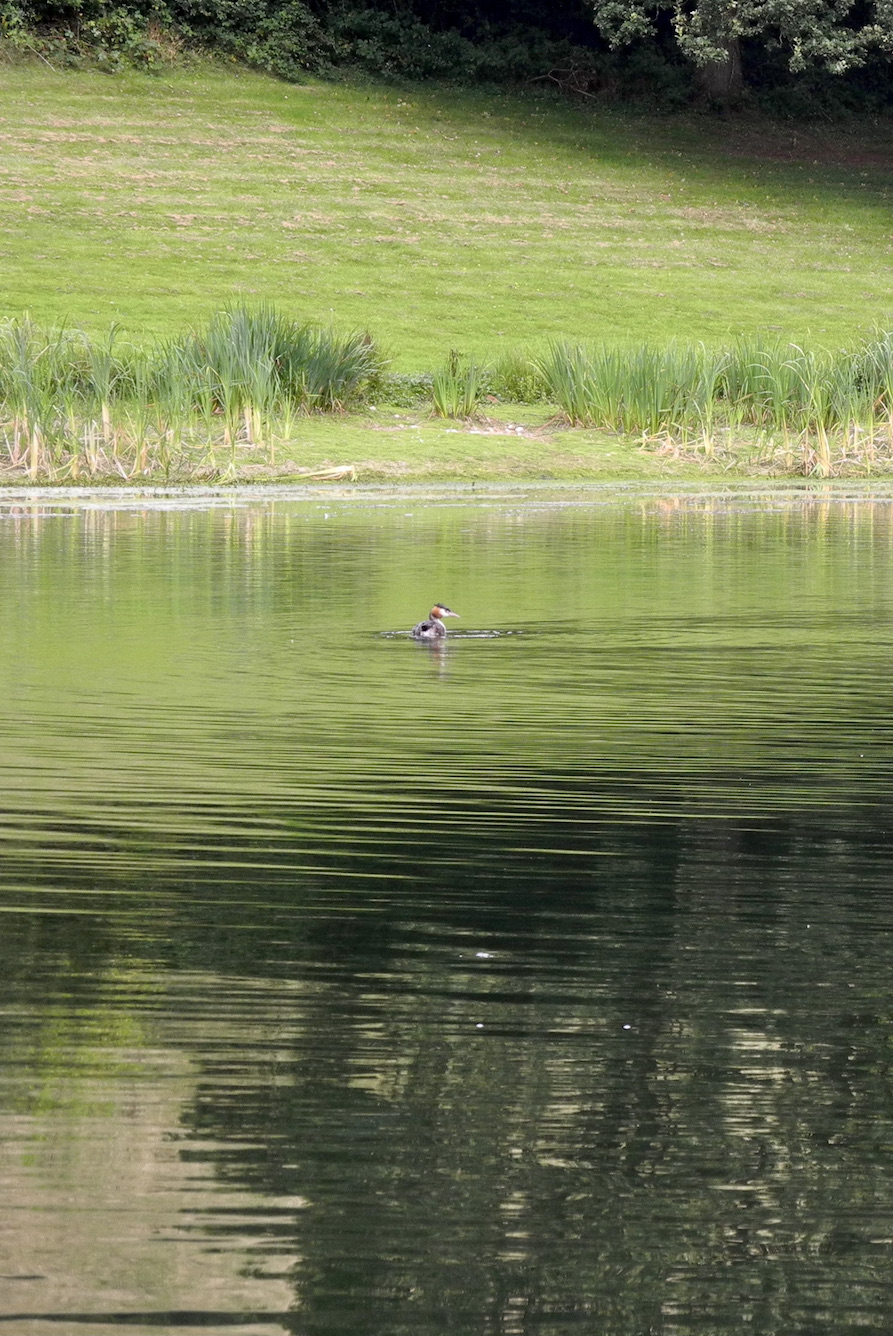
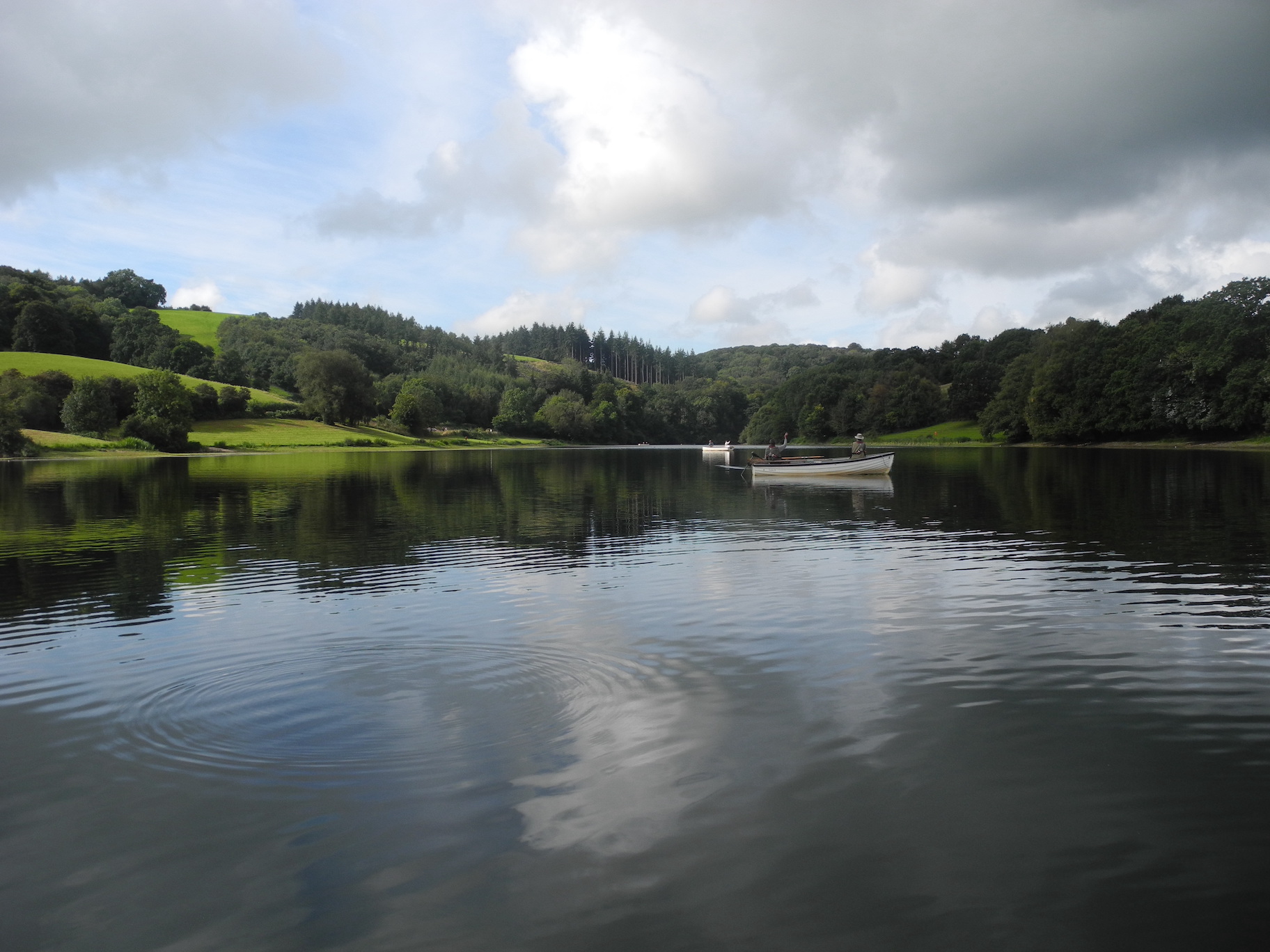
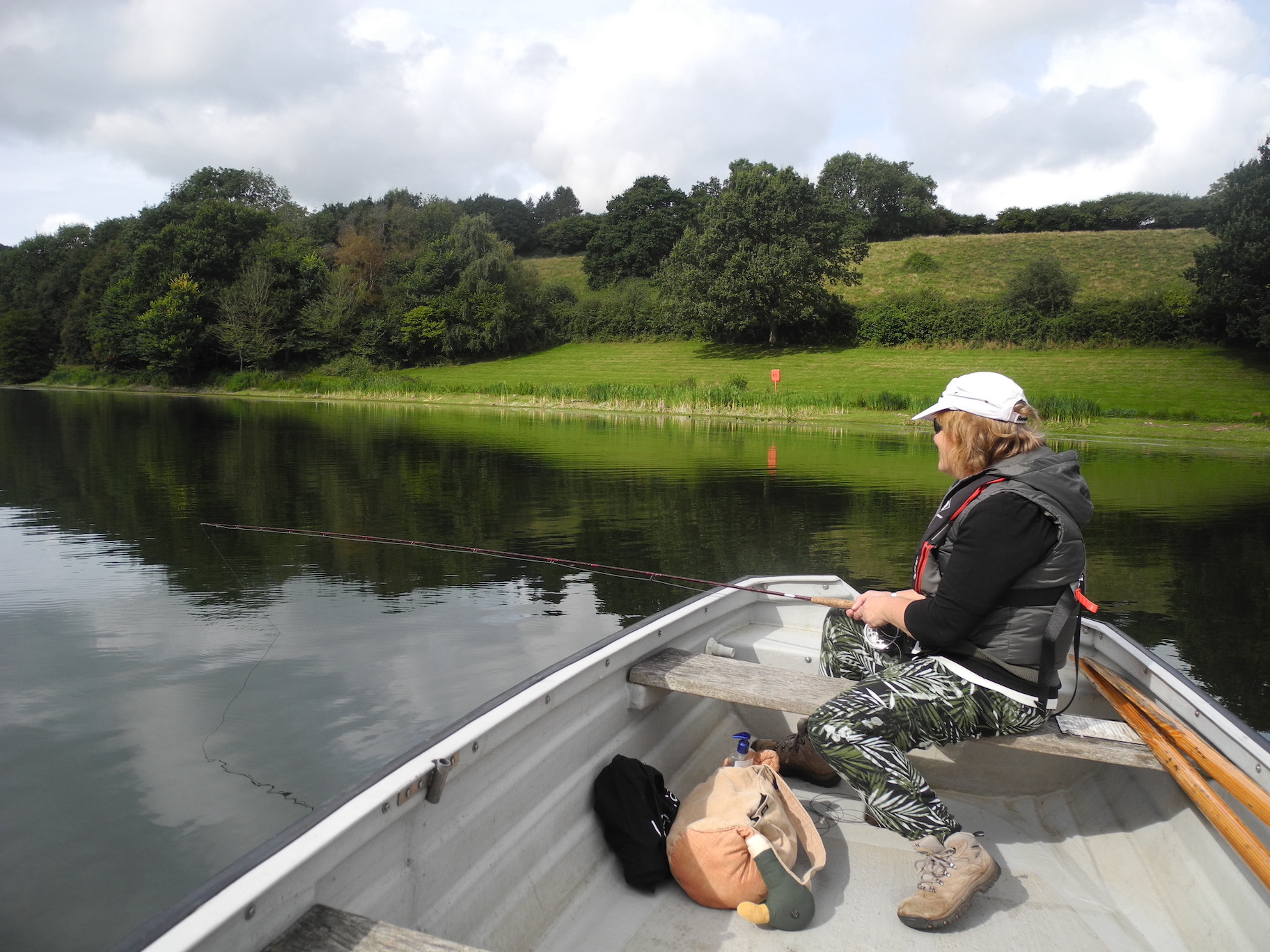
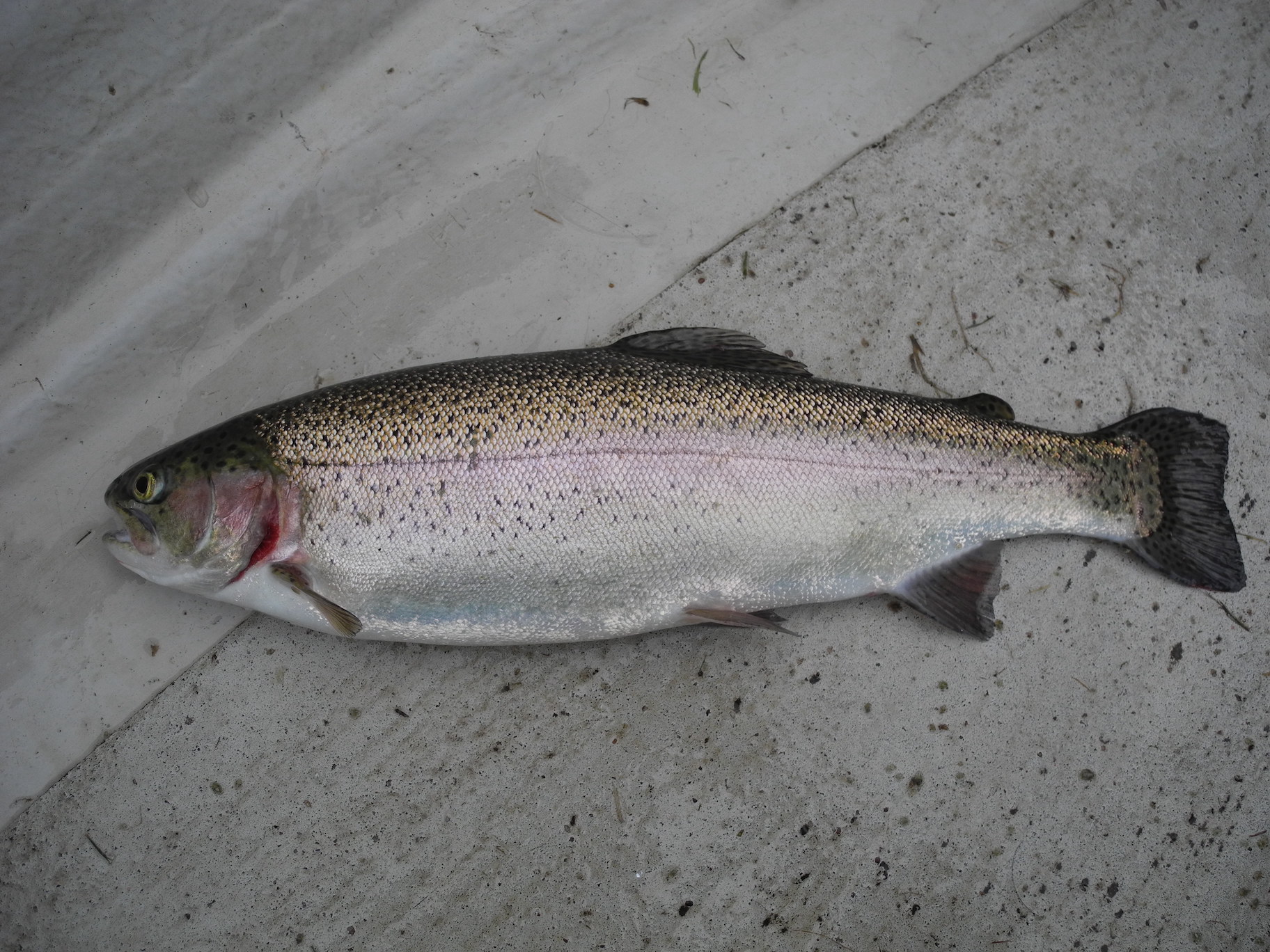
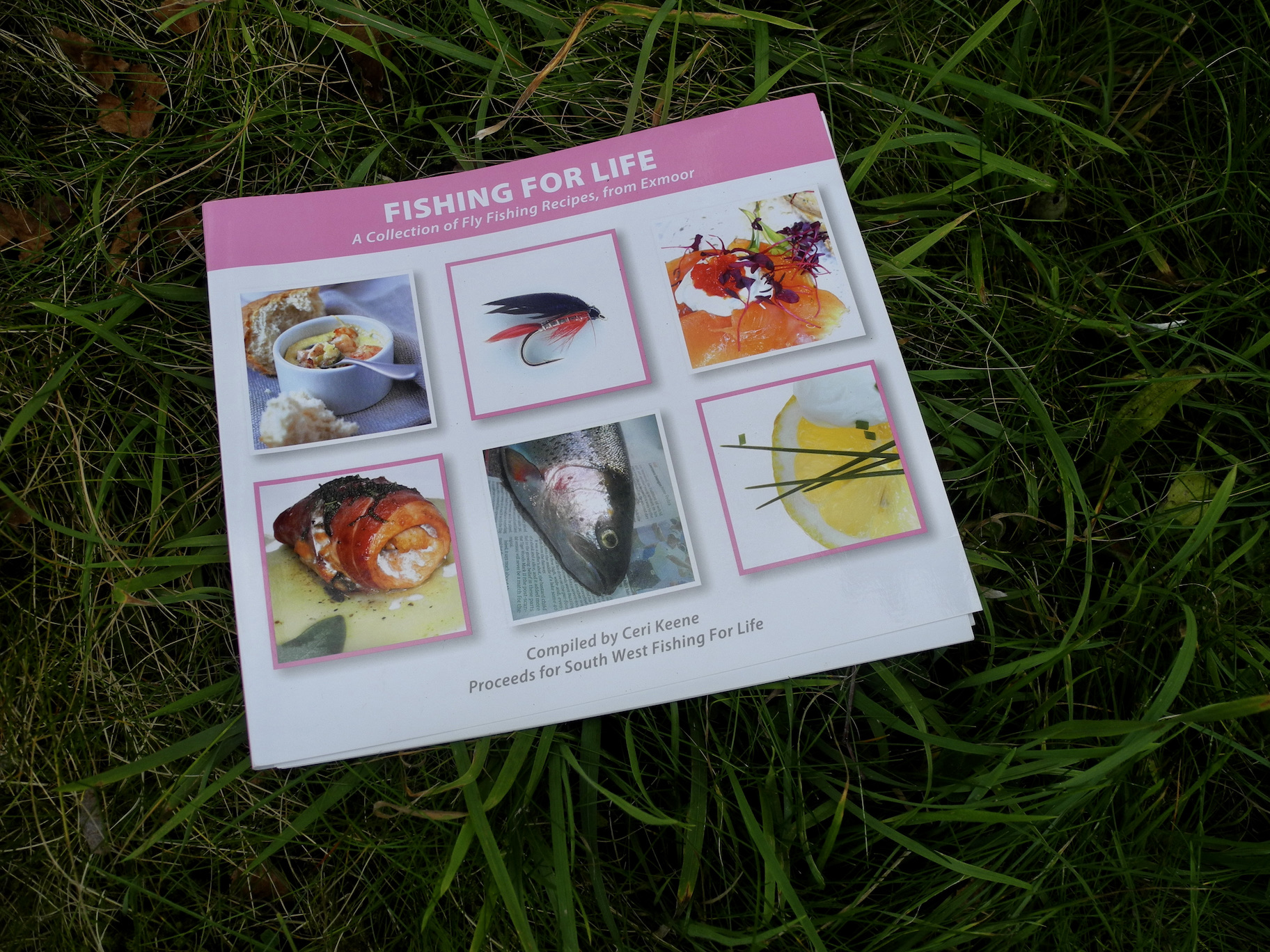

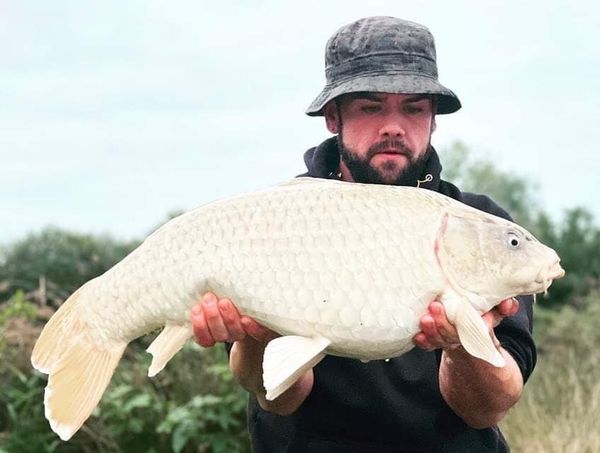
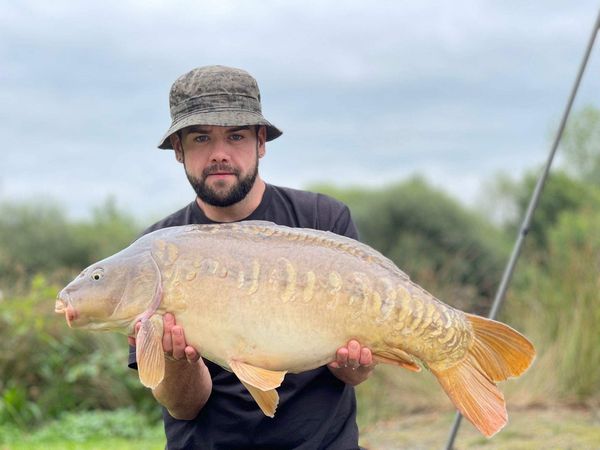
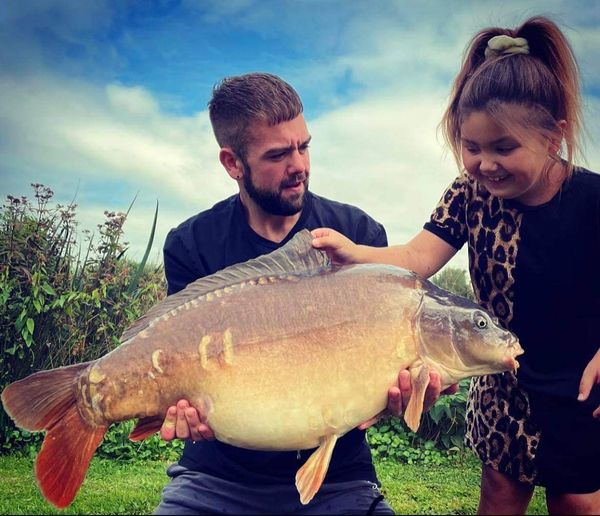
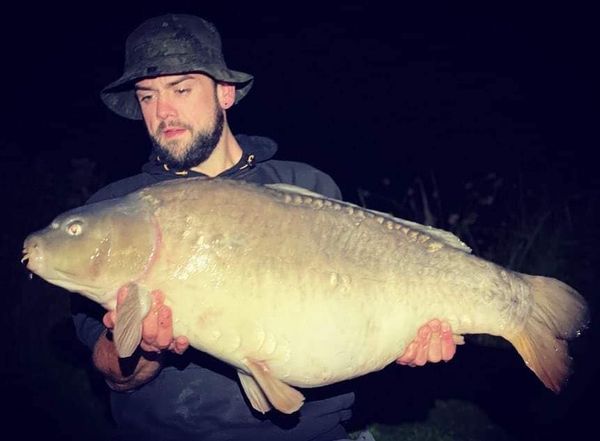
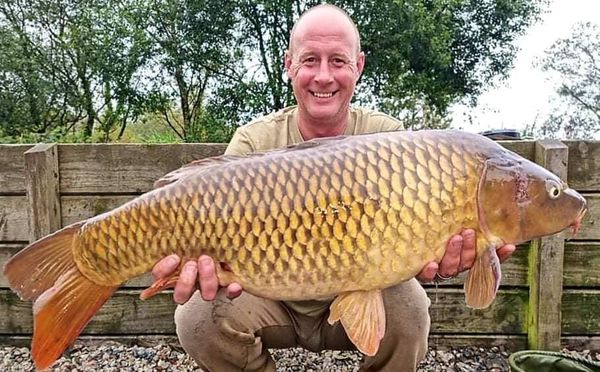
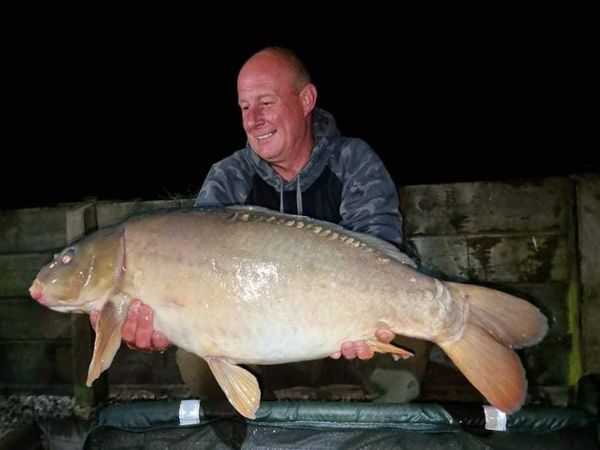
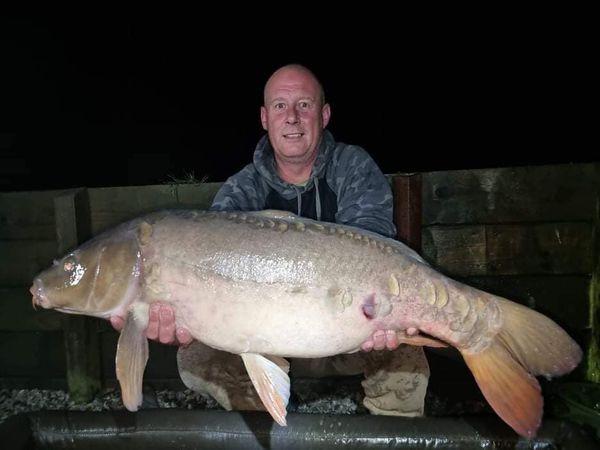
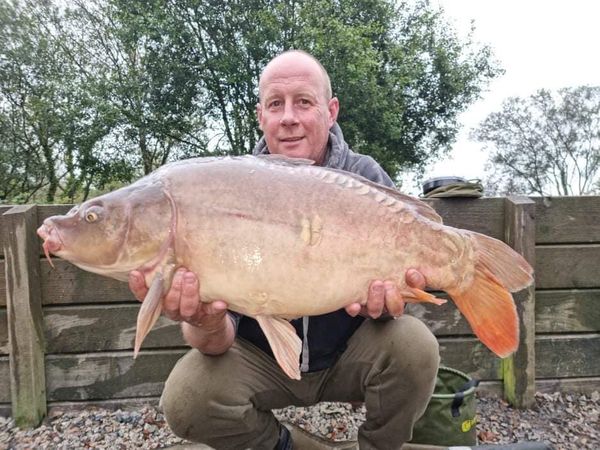
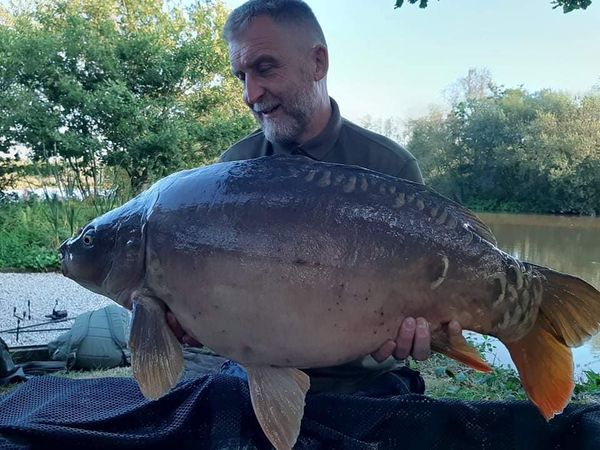
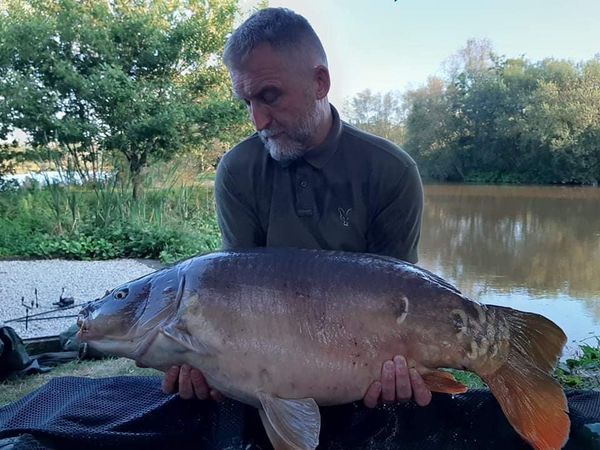
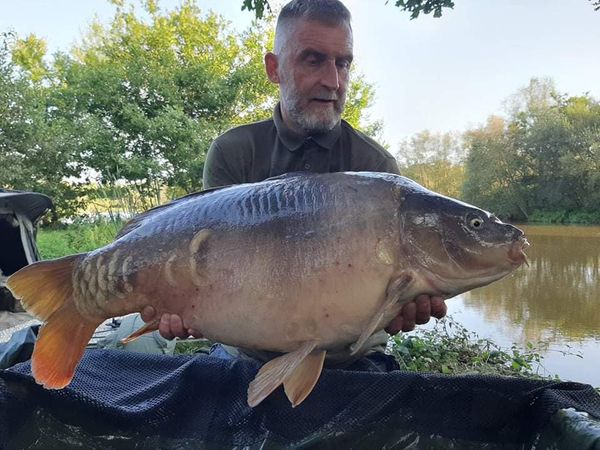
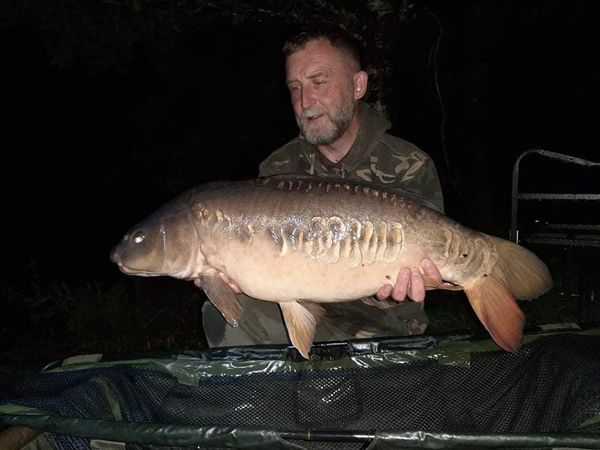

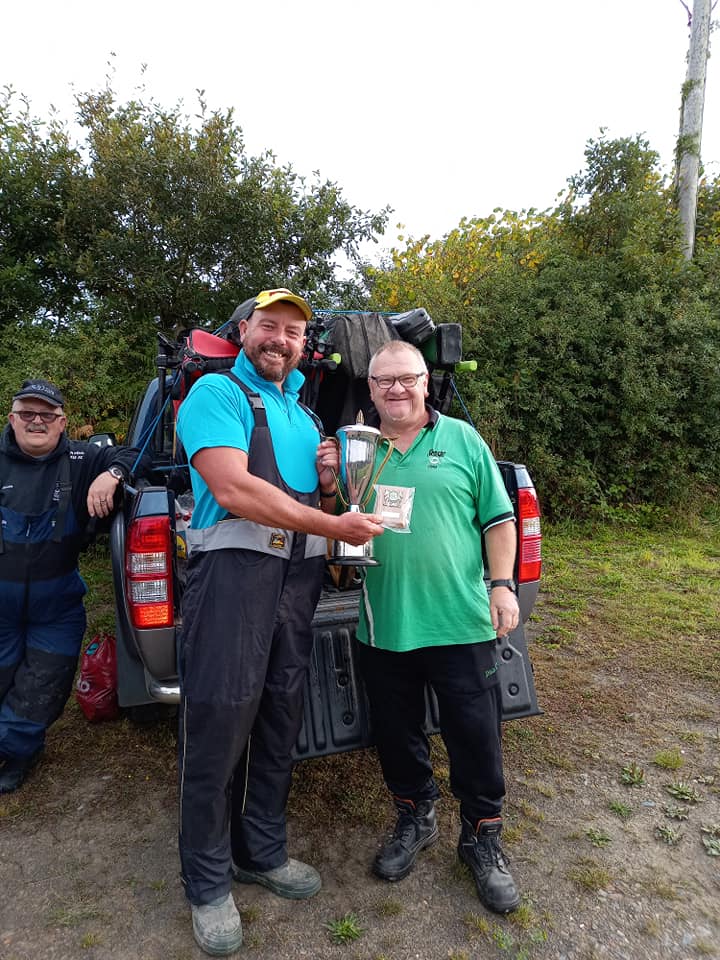
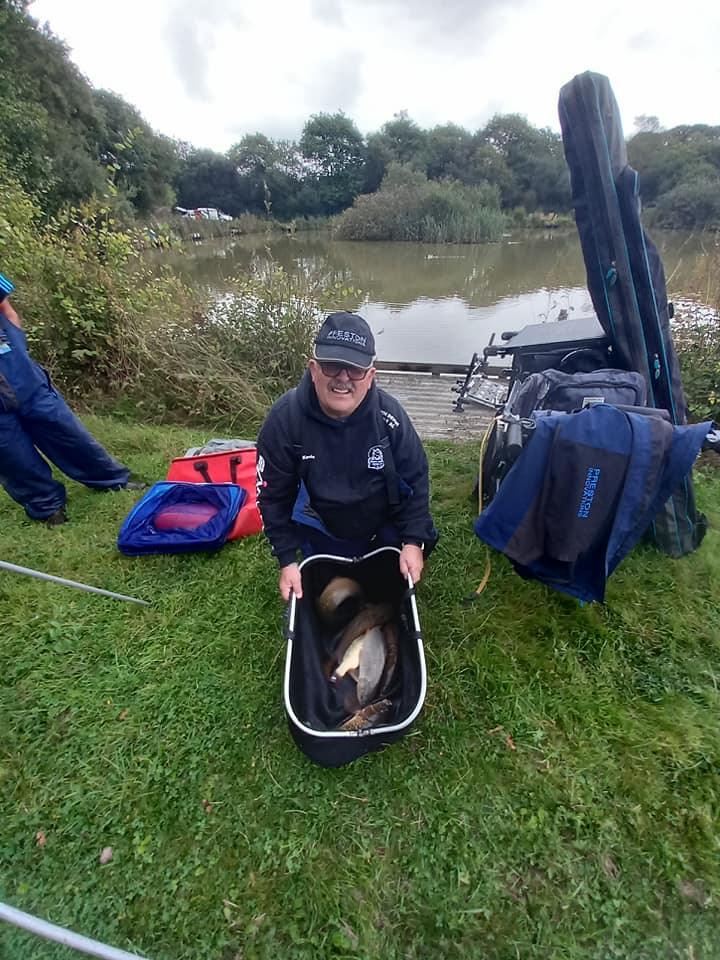
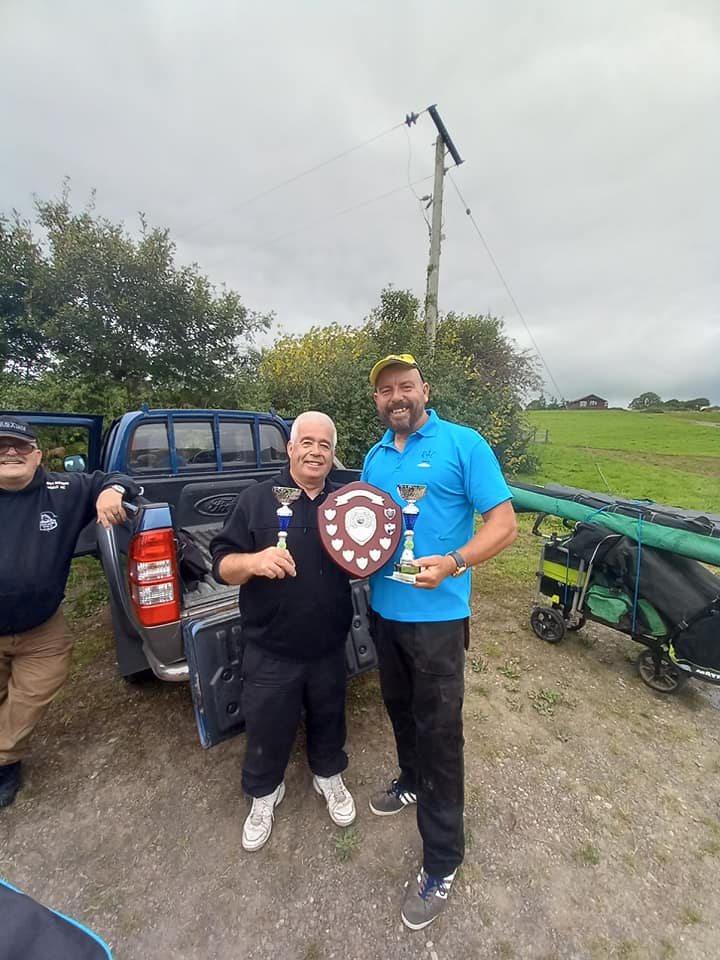
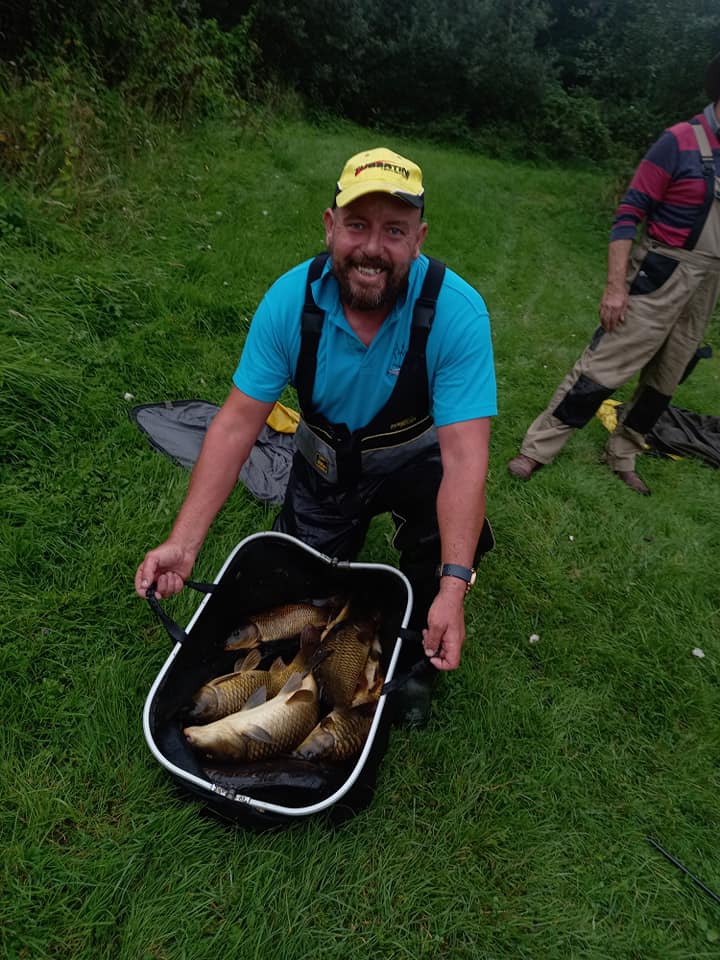
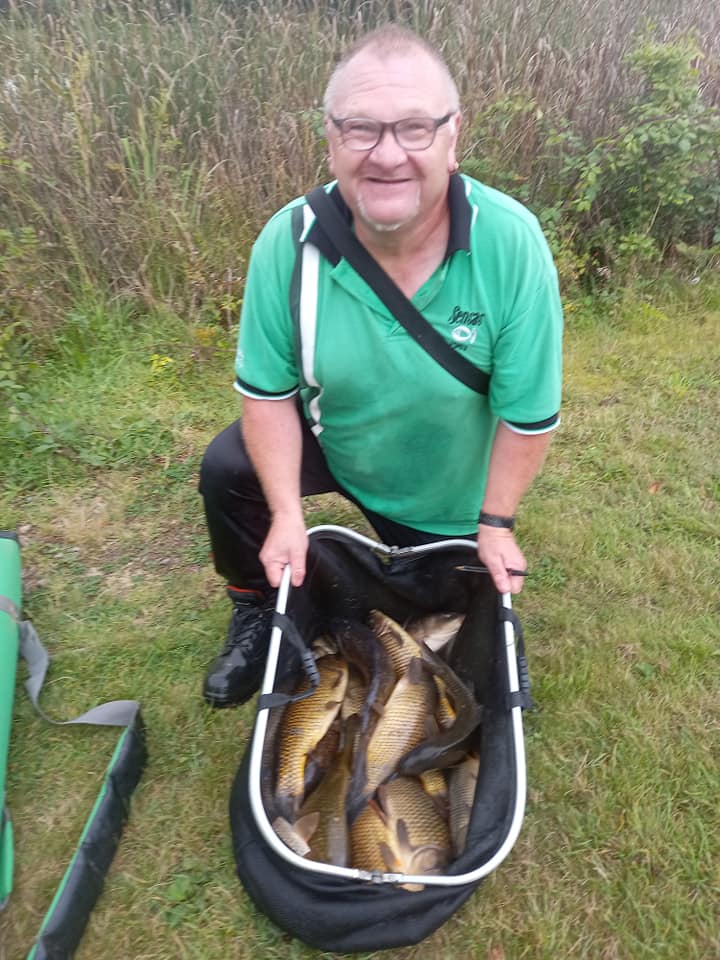
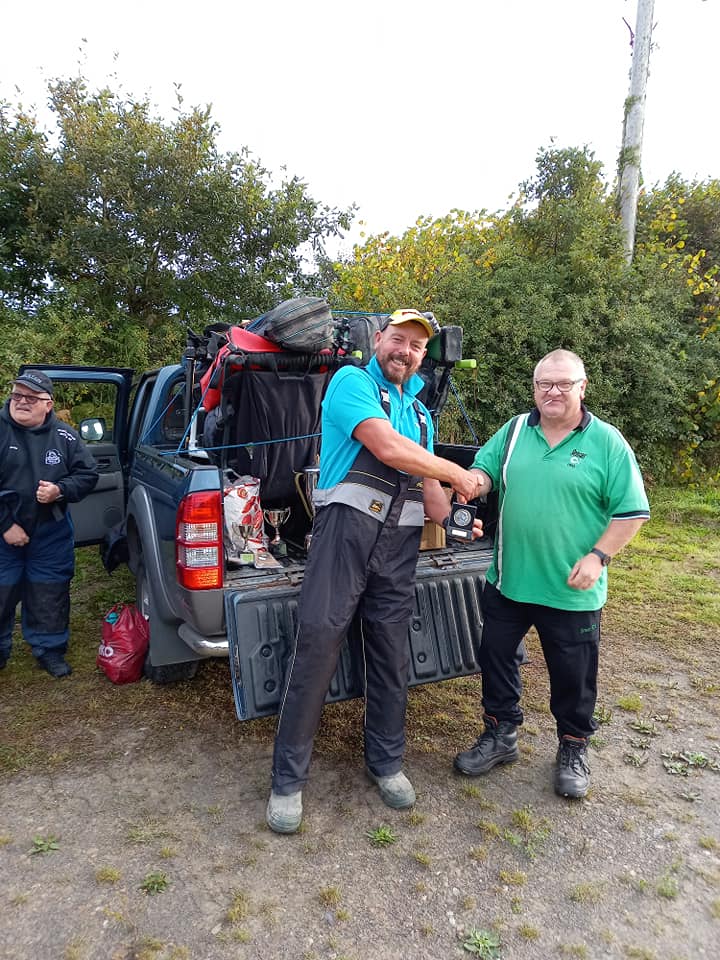
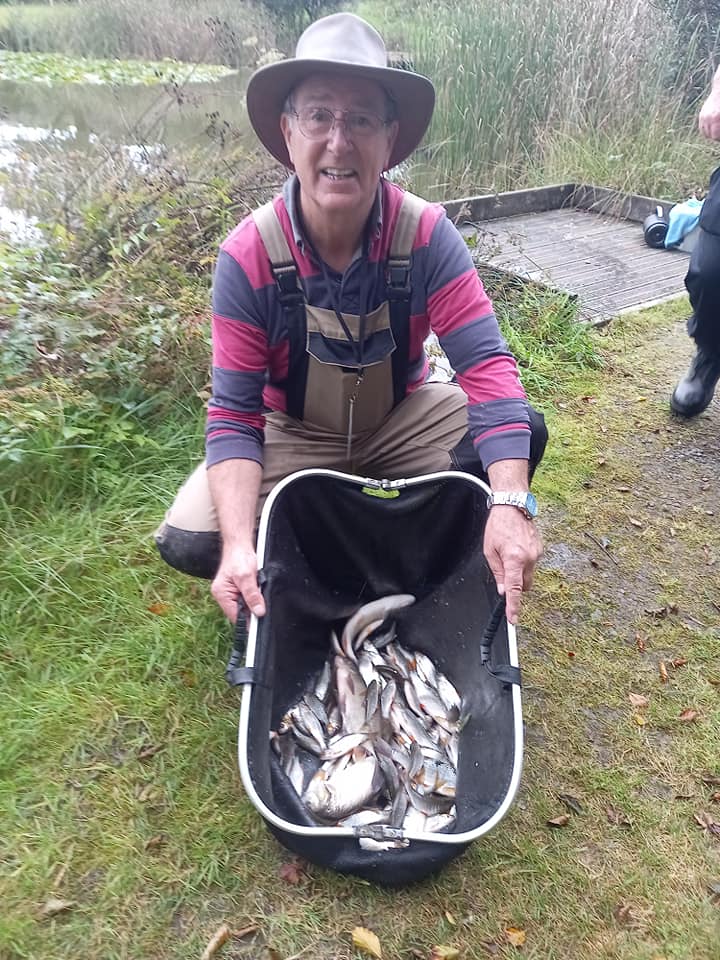

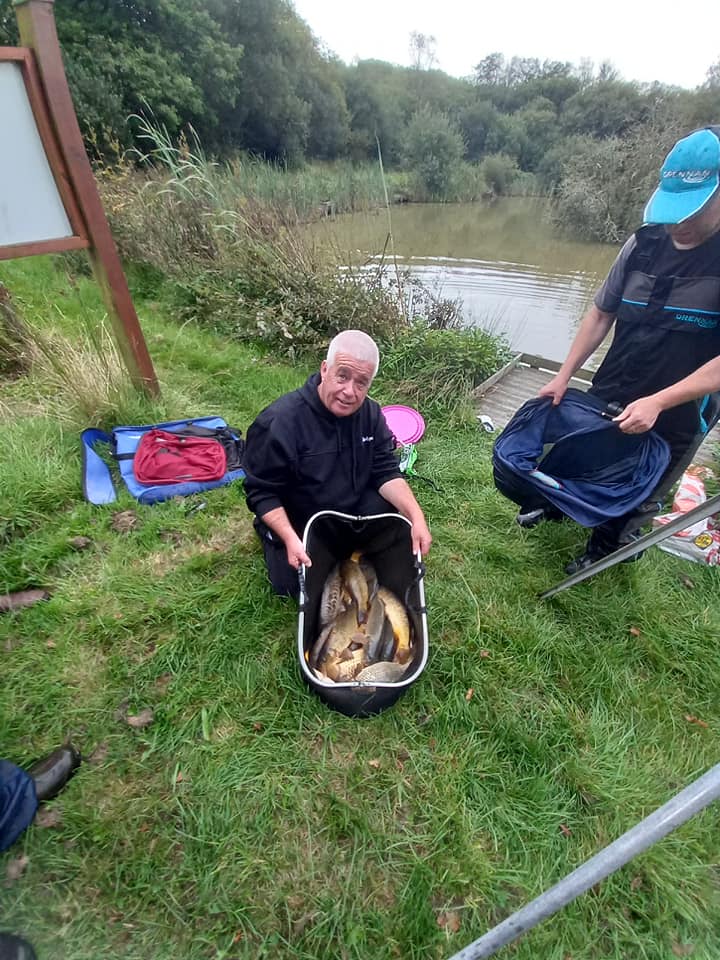
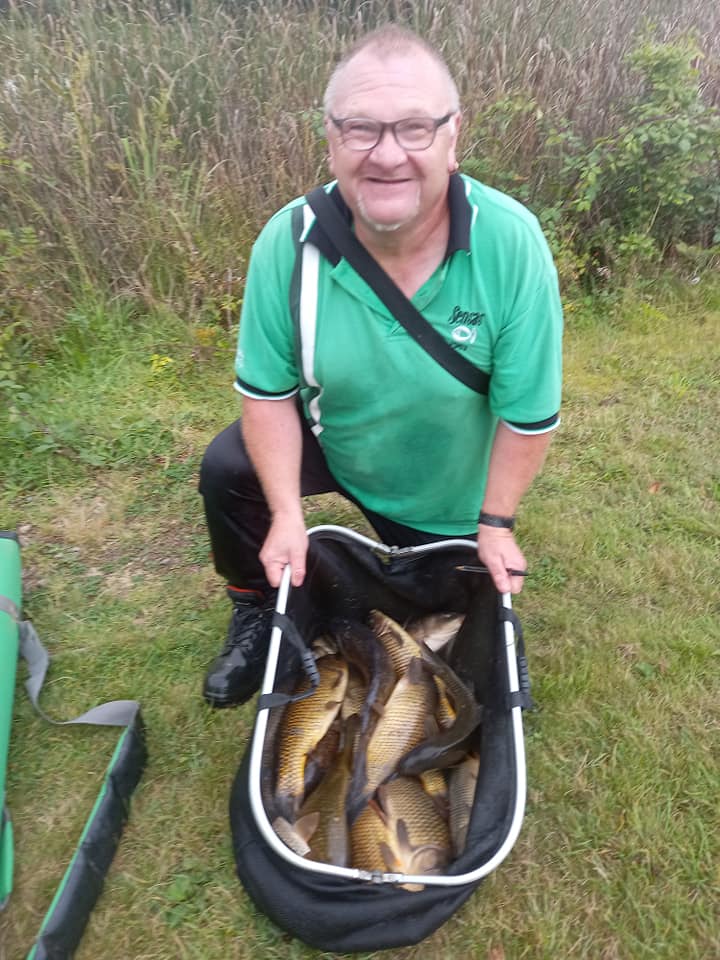
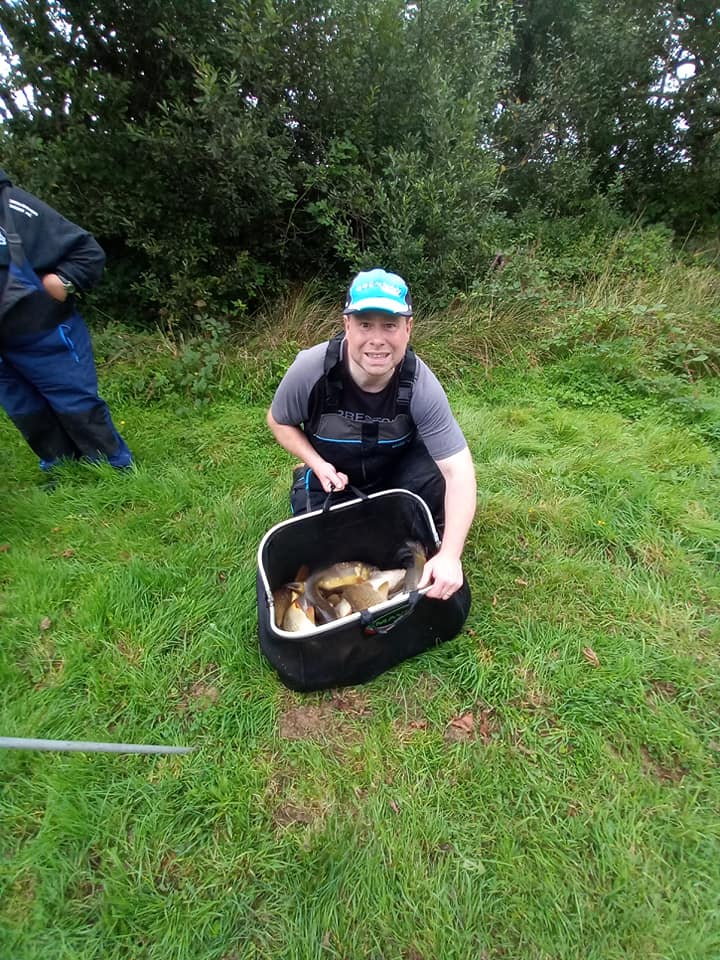
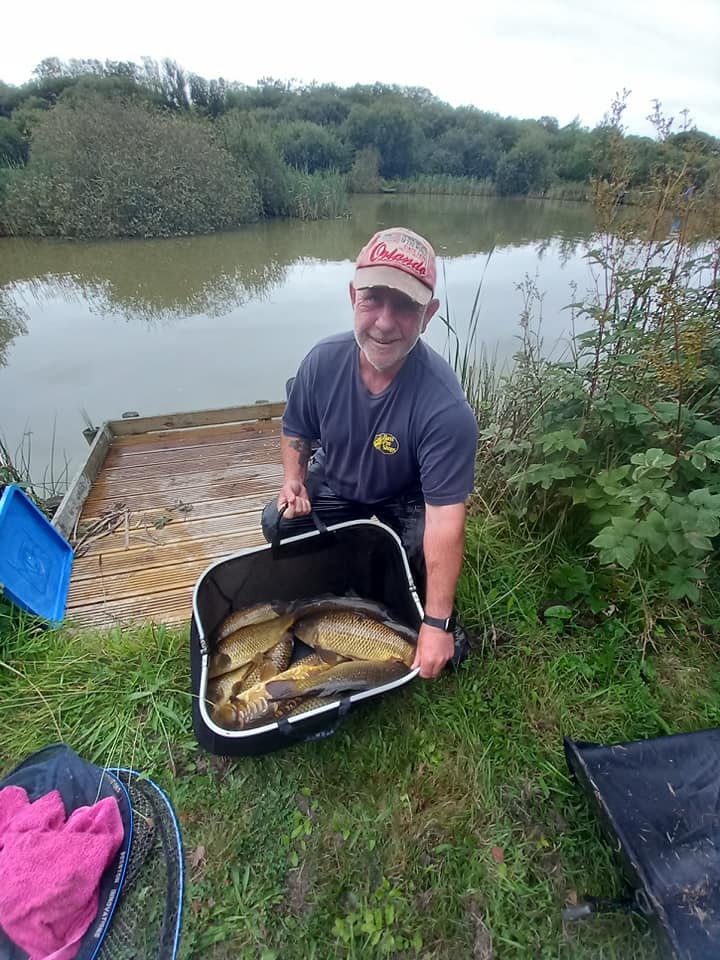
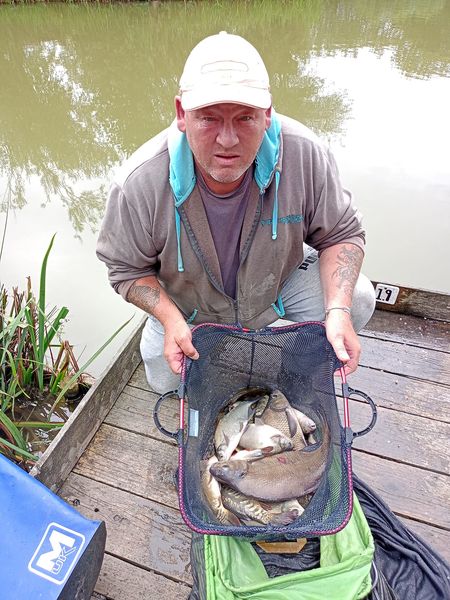
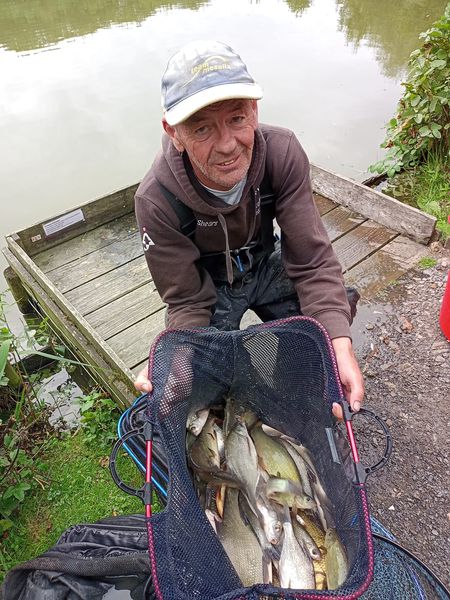
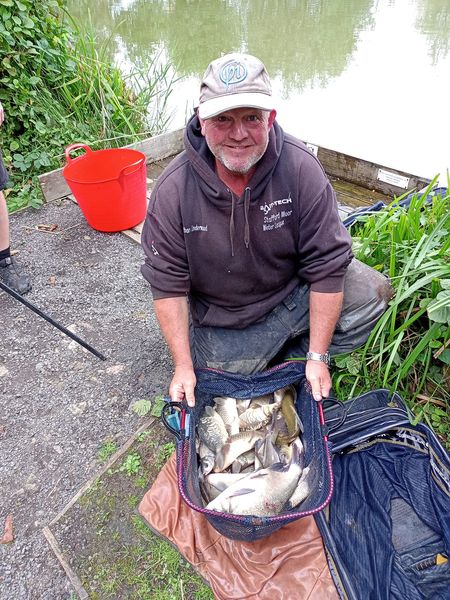
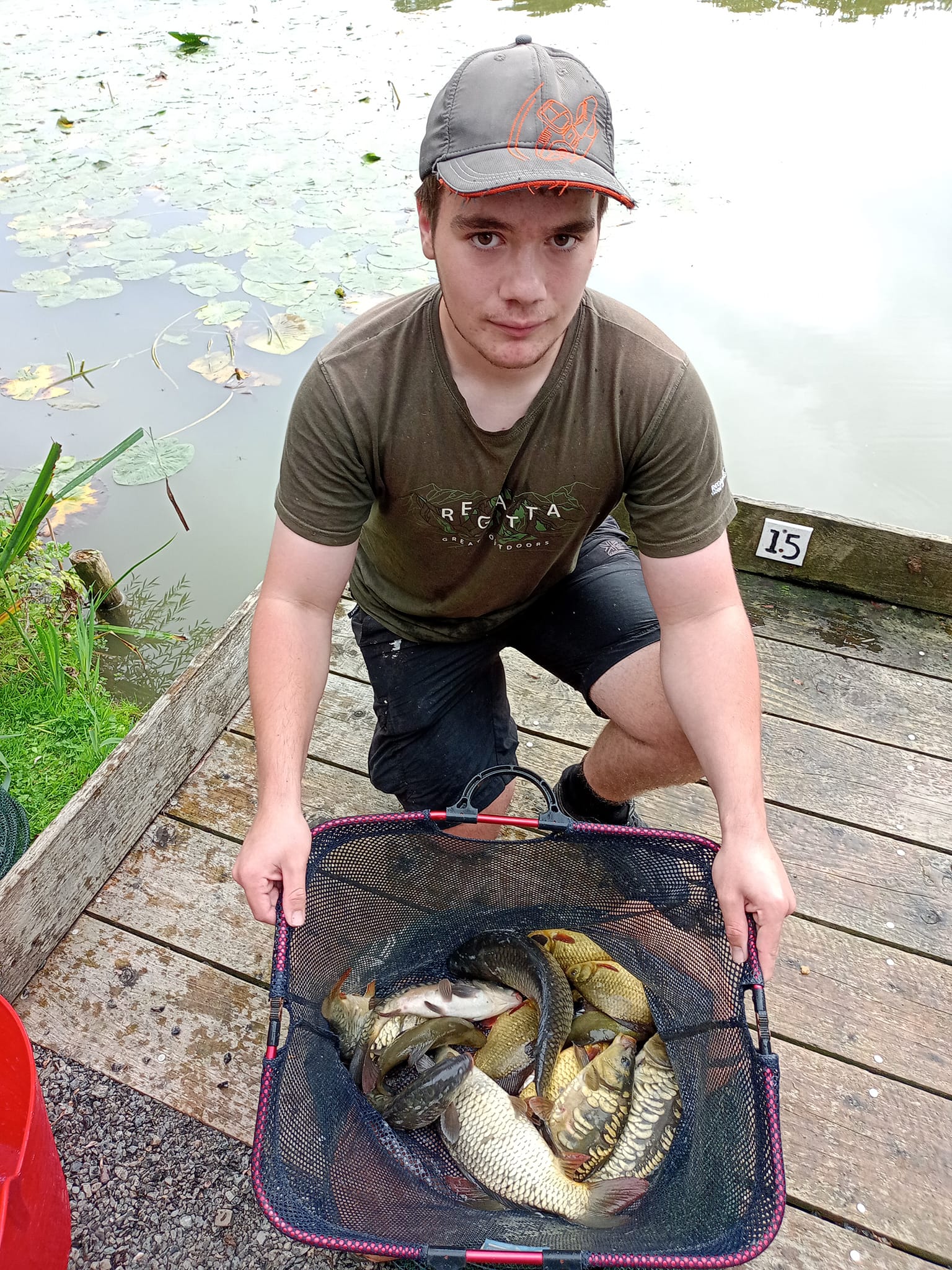
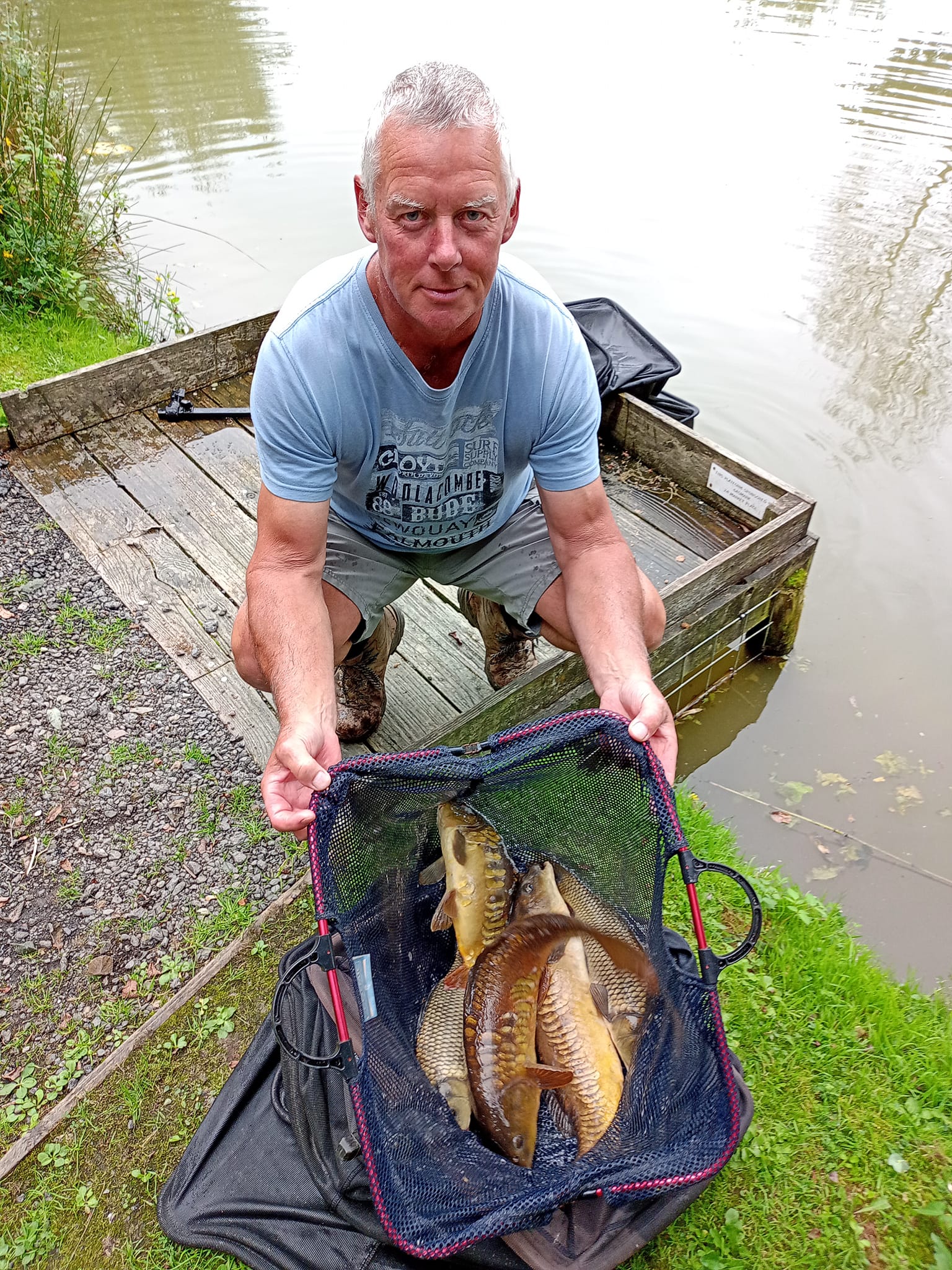
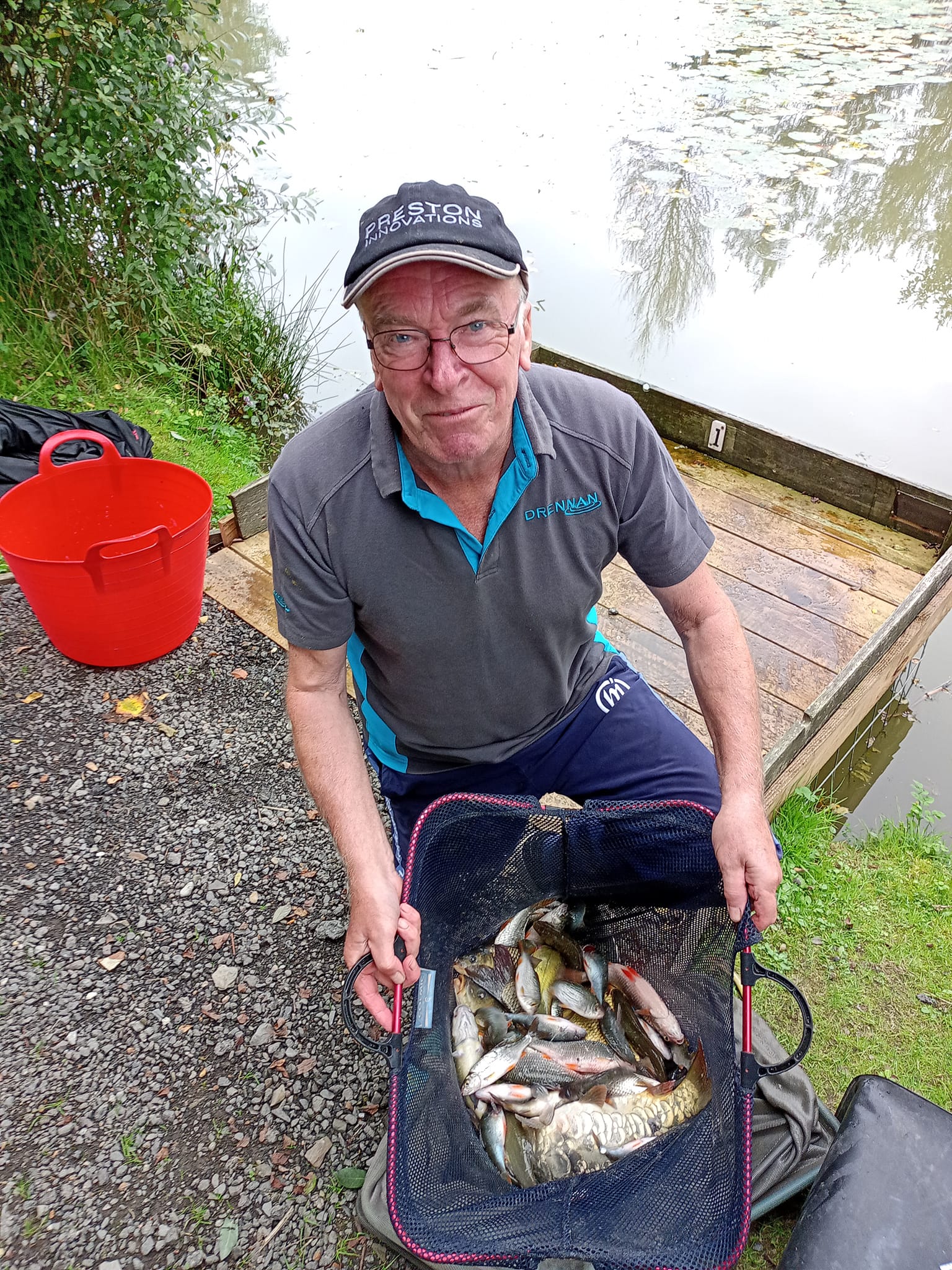
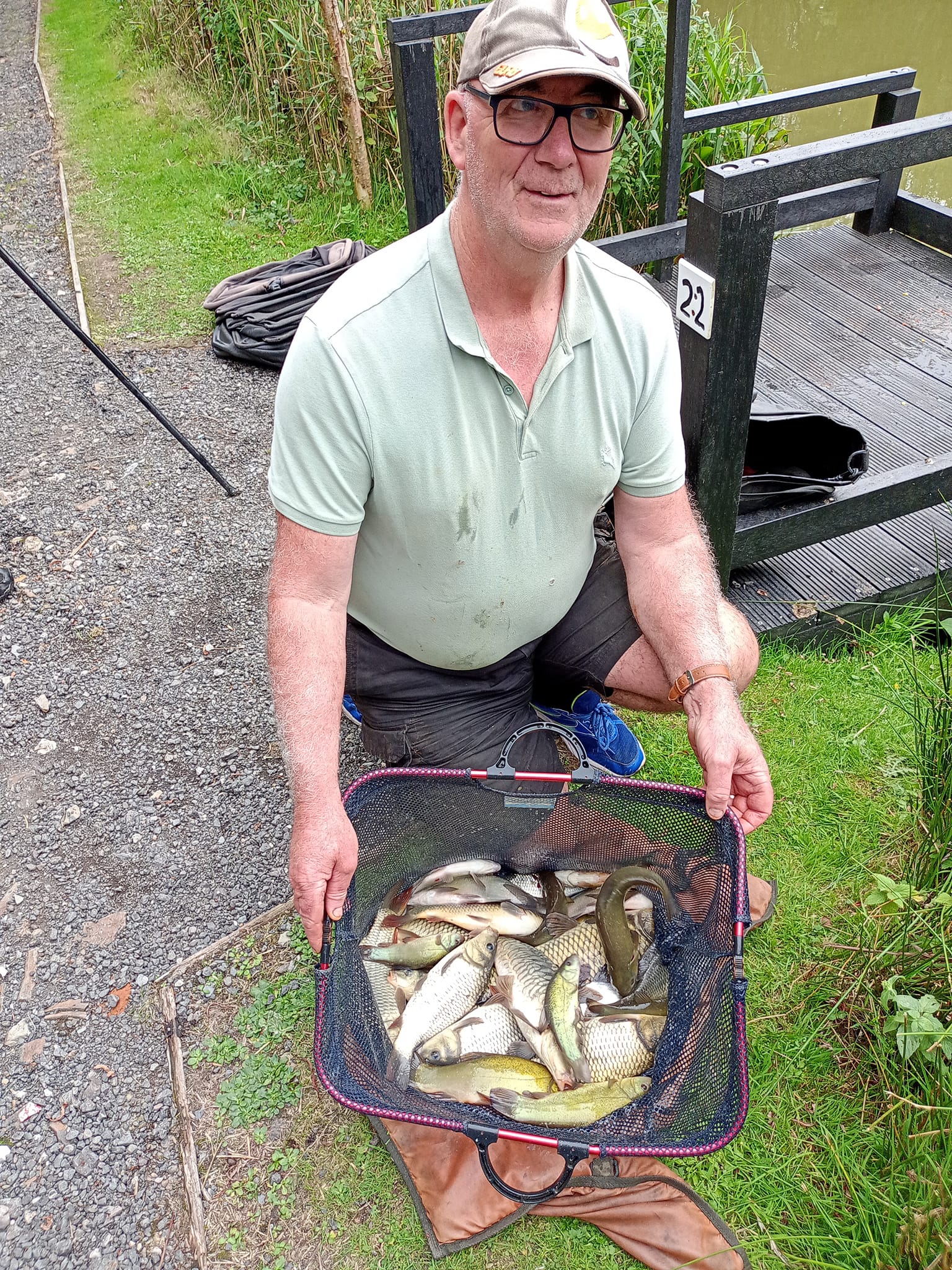
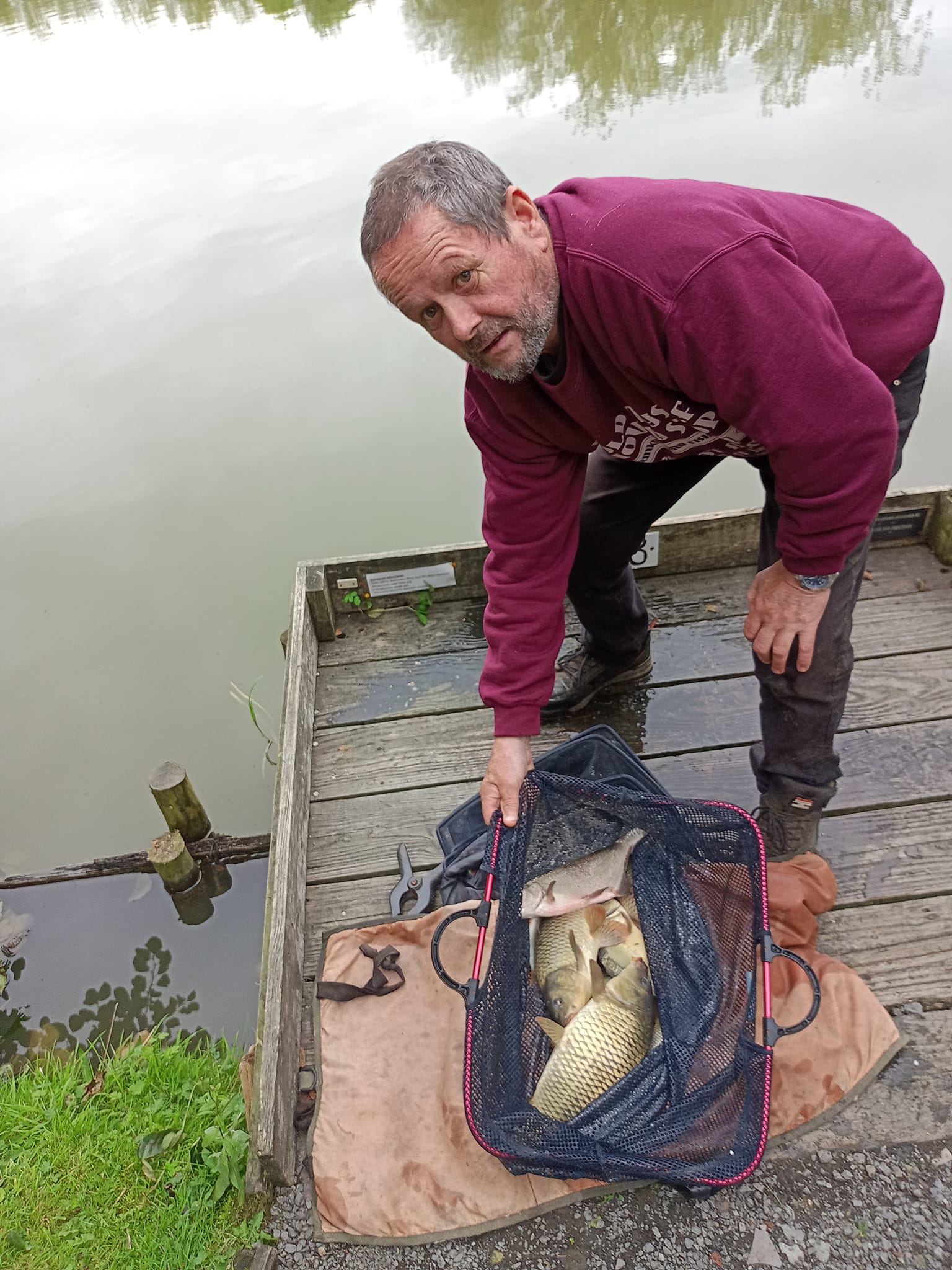
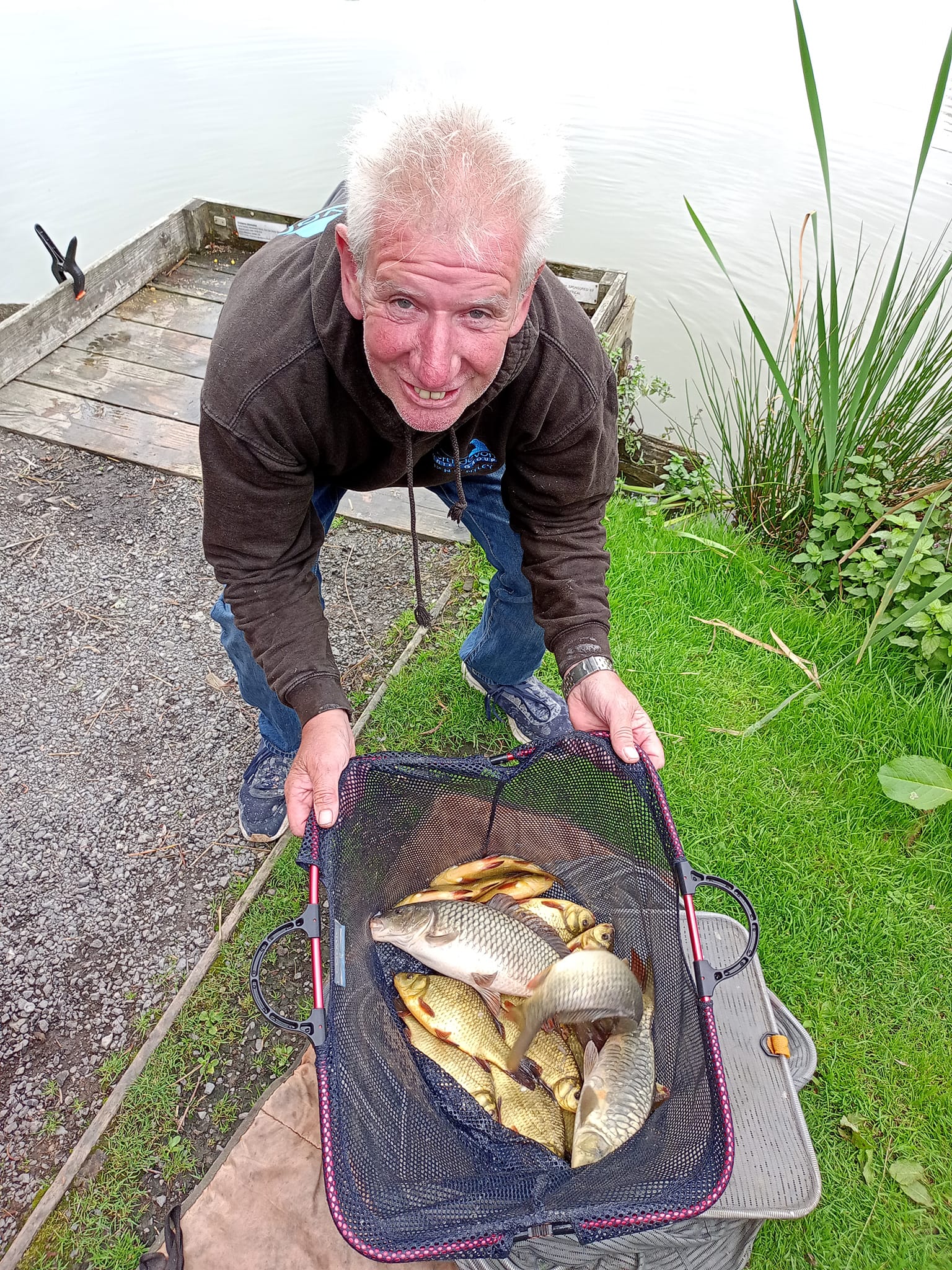
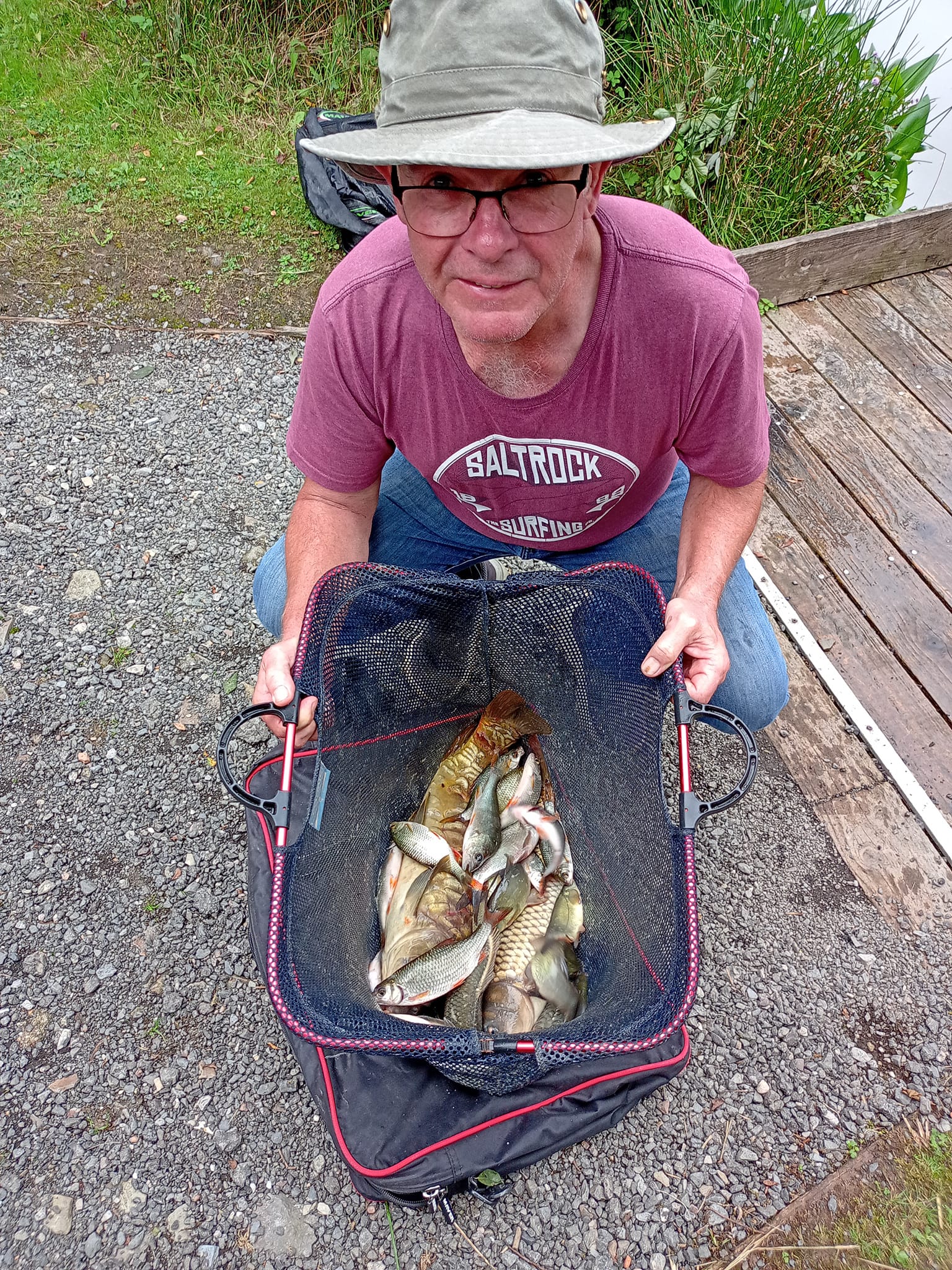
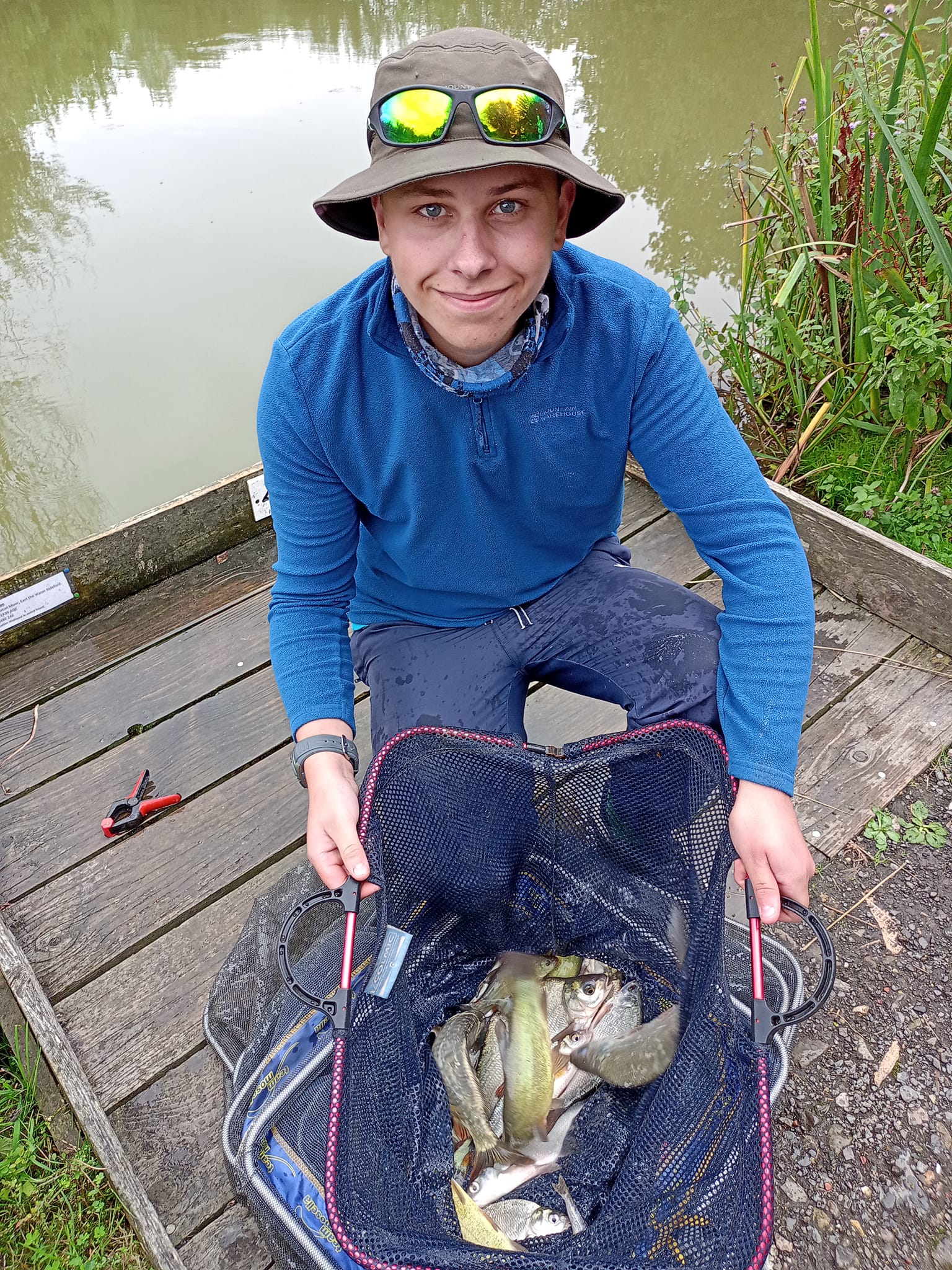
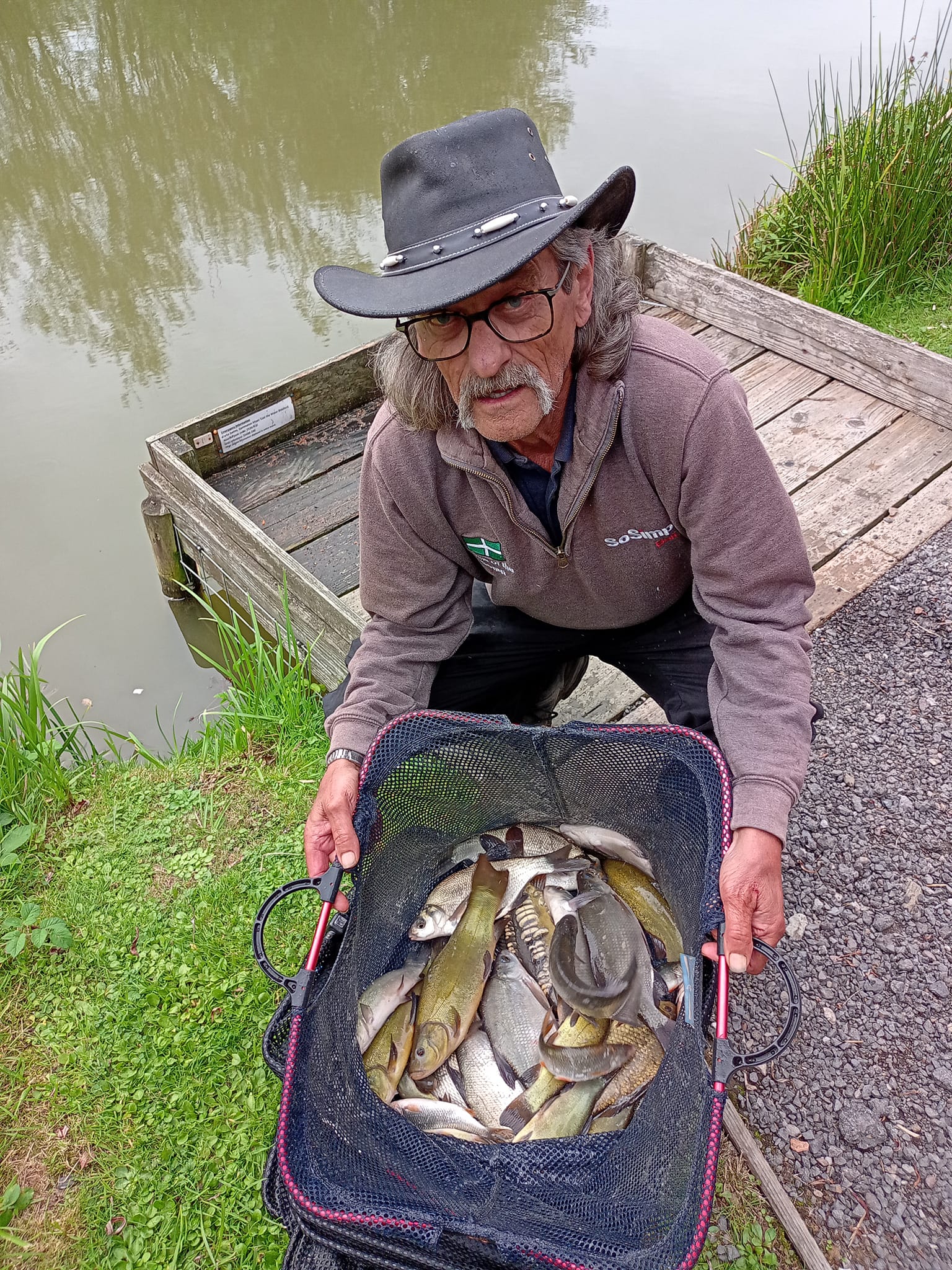

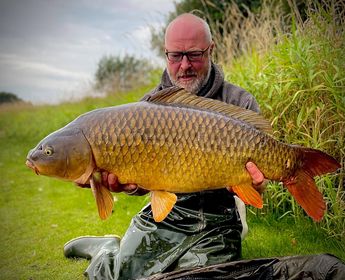
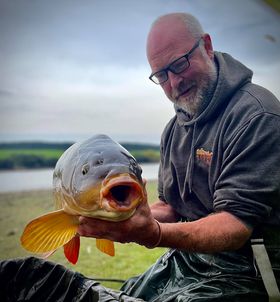

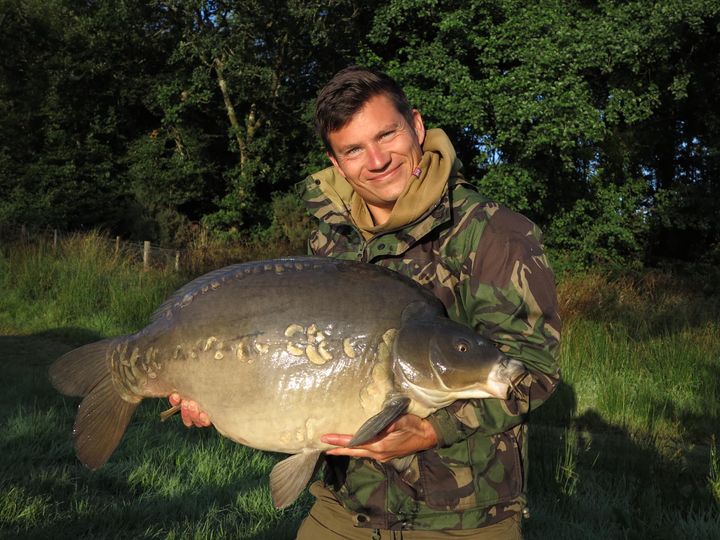

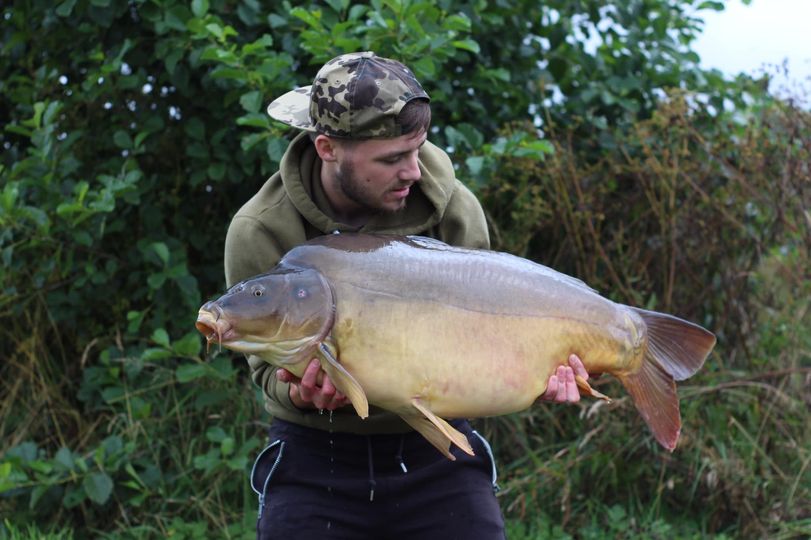 Sam Passmore, 27 from Plymouth luck continues with another Kracking fish from Nirvana’s Kracking Carp Lake! A 36lb 11oz caught on a manilla pop up, fished over a bed of boilies.
Sam Passmore, 27 from Plymouth luck continues with another Kracking fish from Nirvana’s Kracking Carp Lake! A 36lb 11oz caught on a manilla pop up, fished over a bed of boilies.
